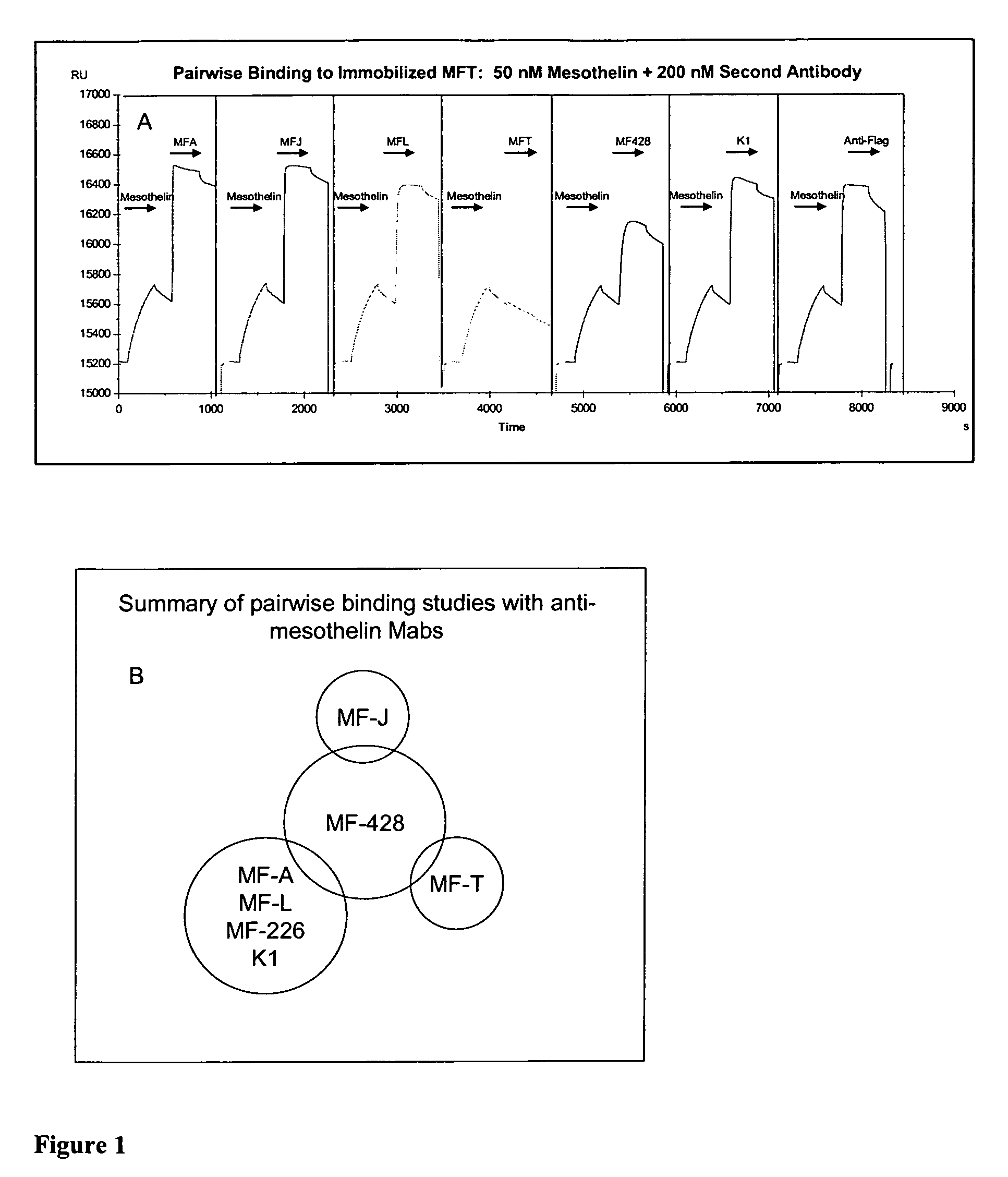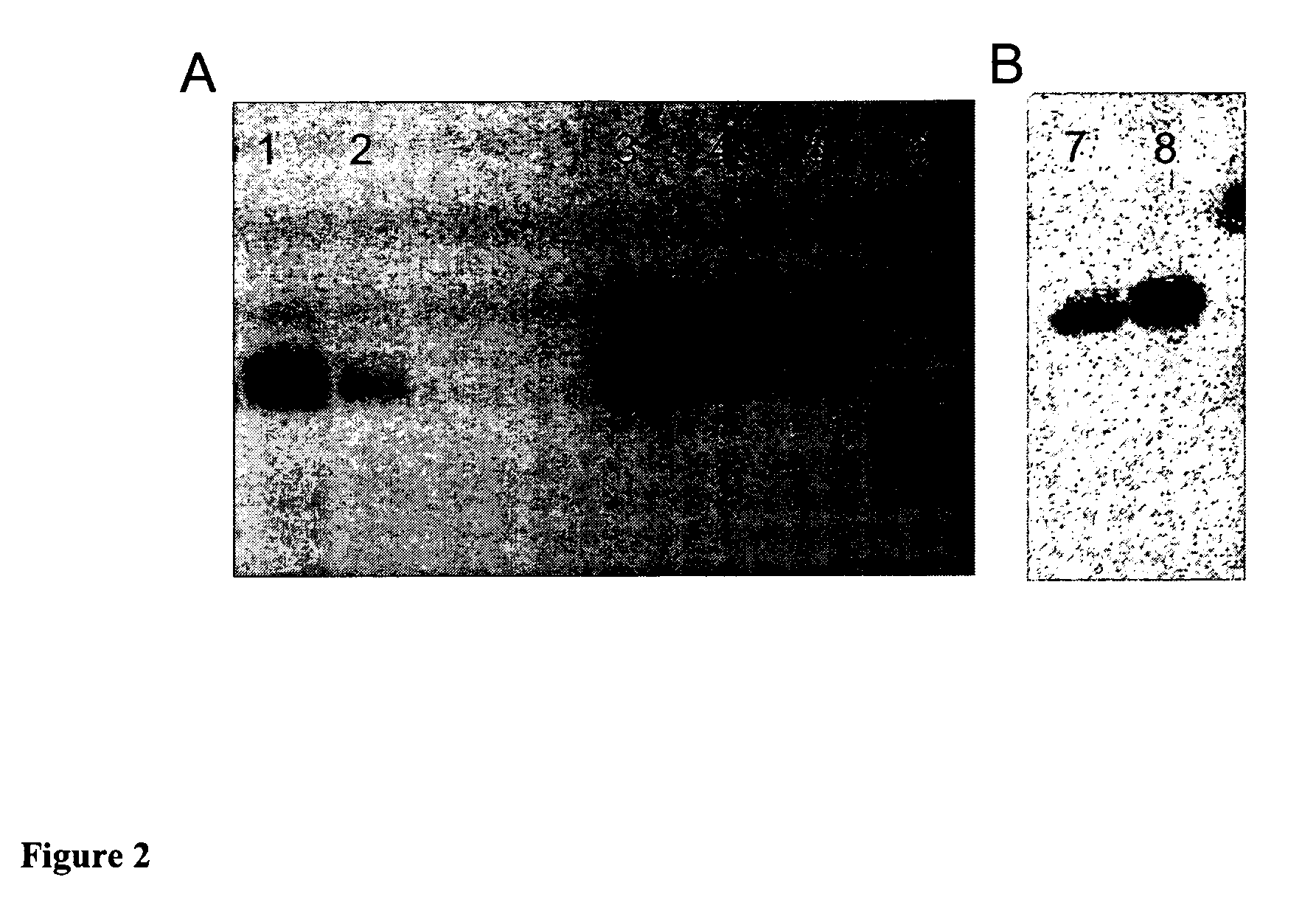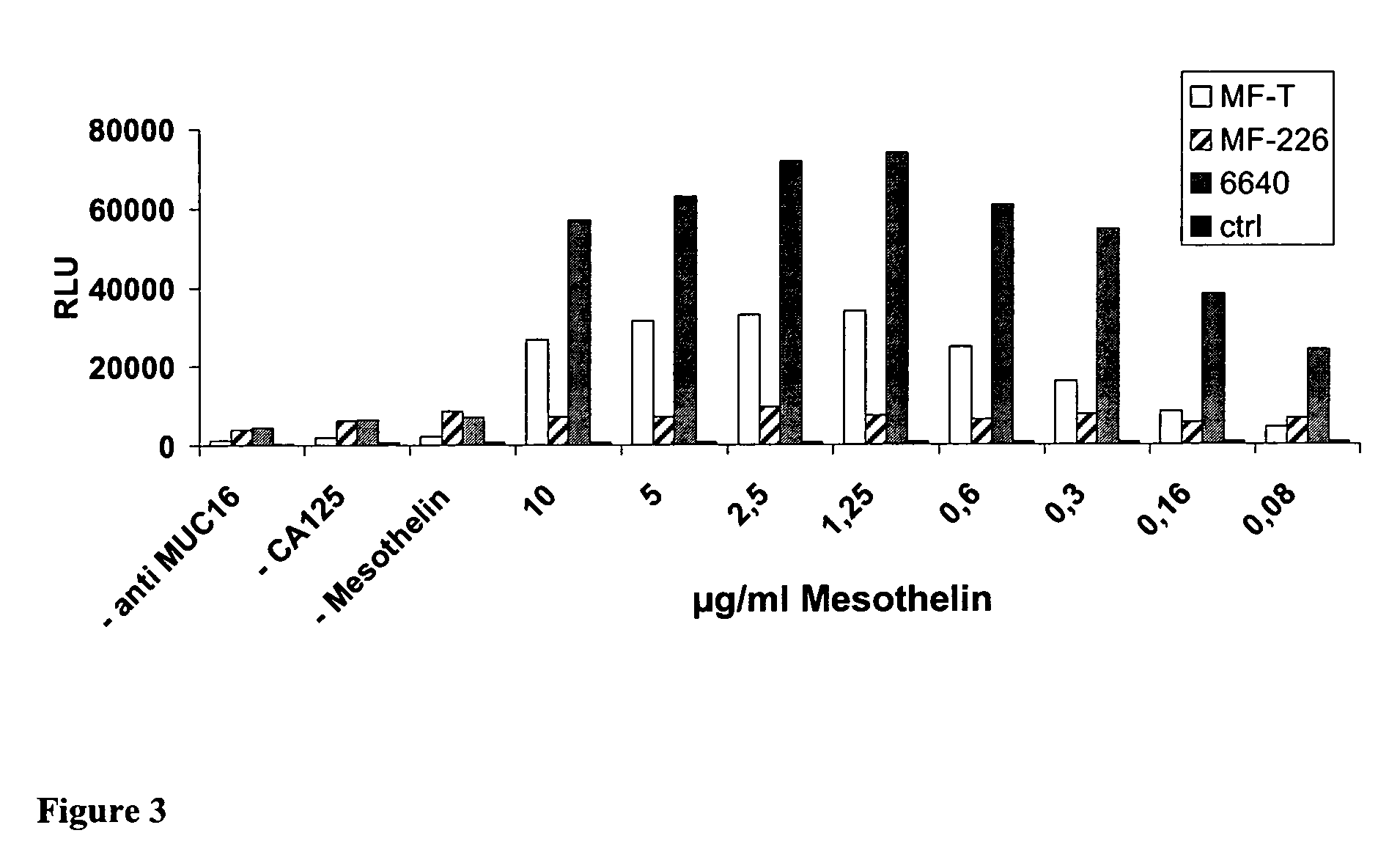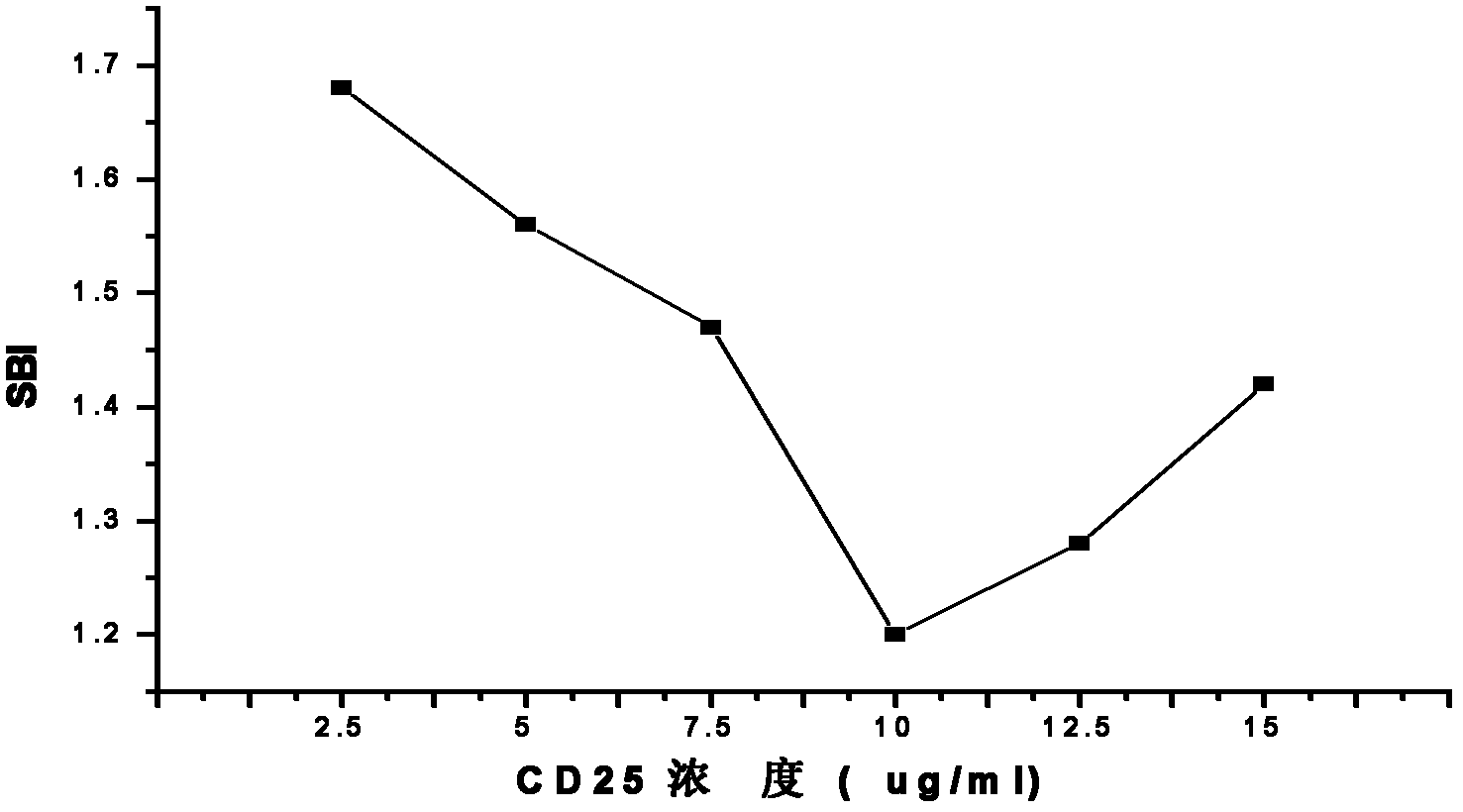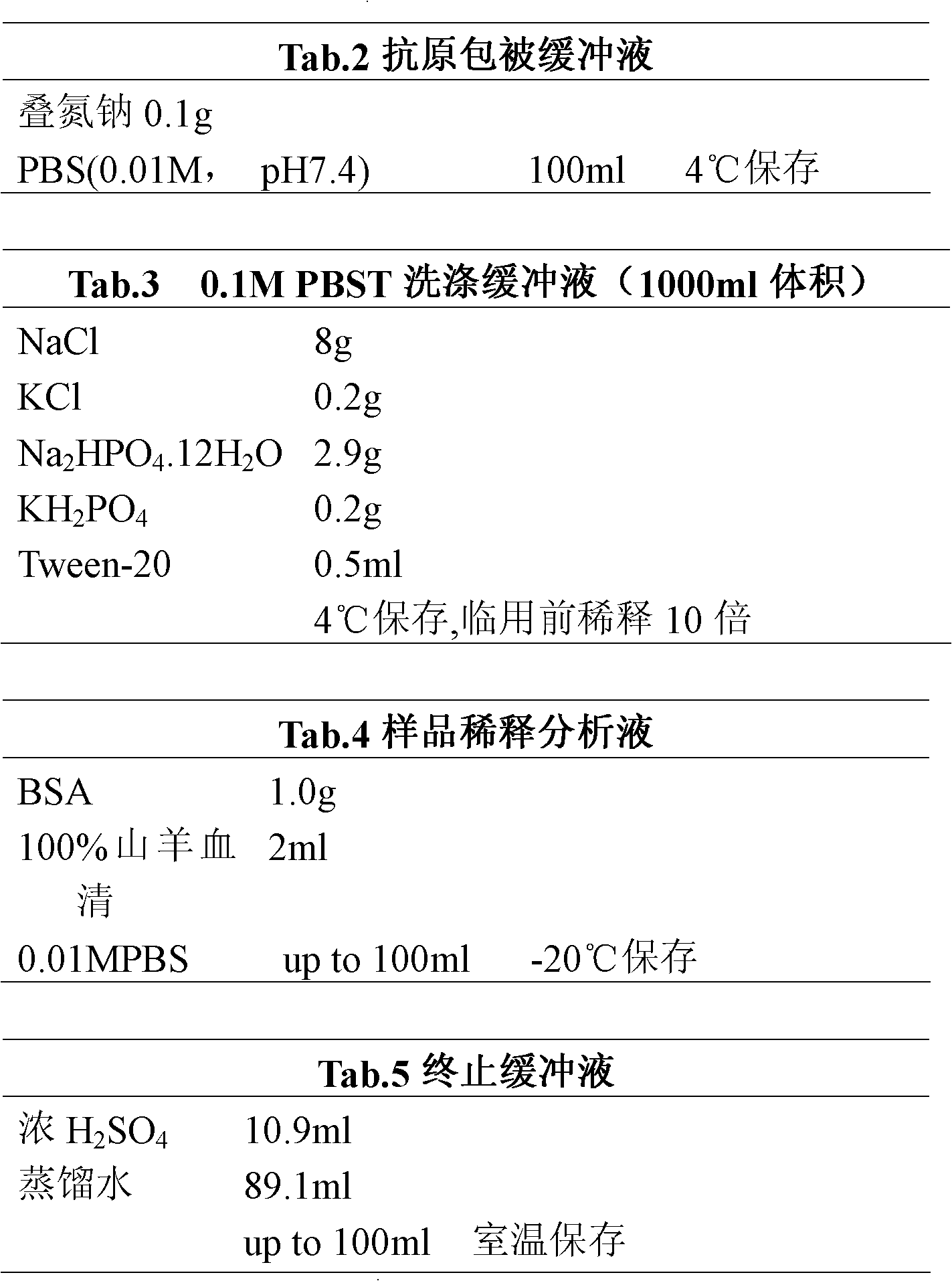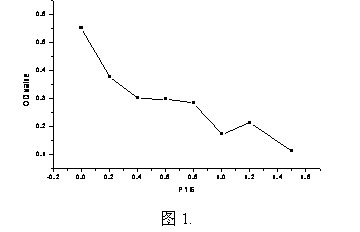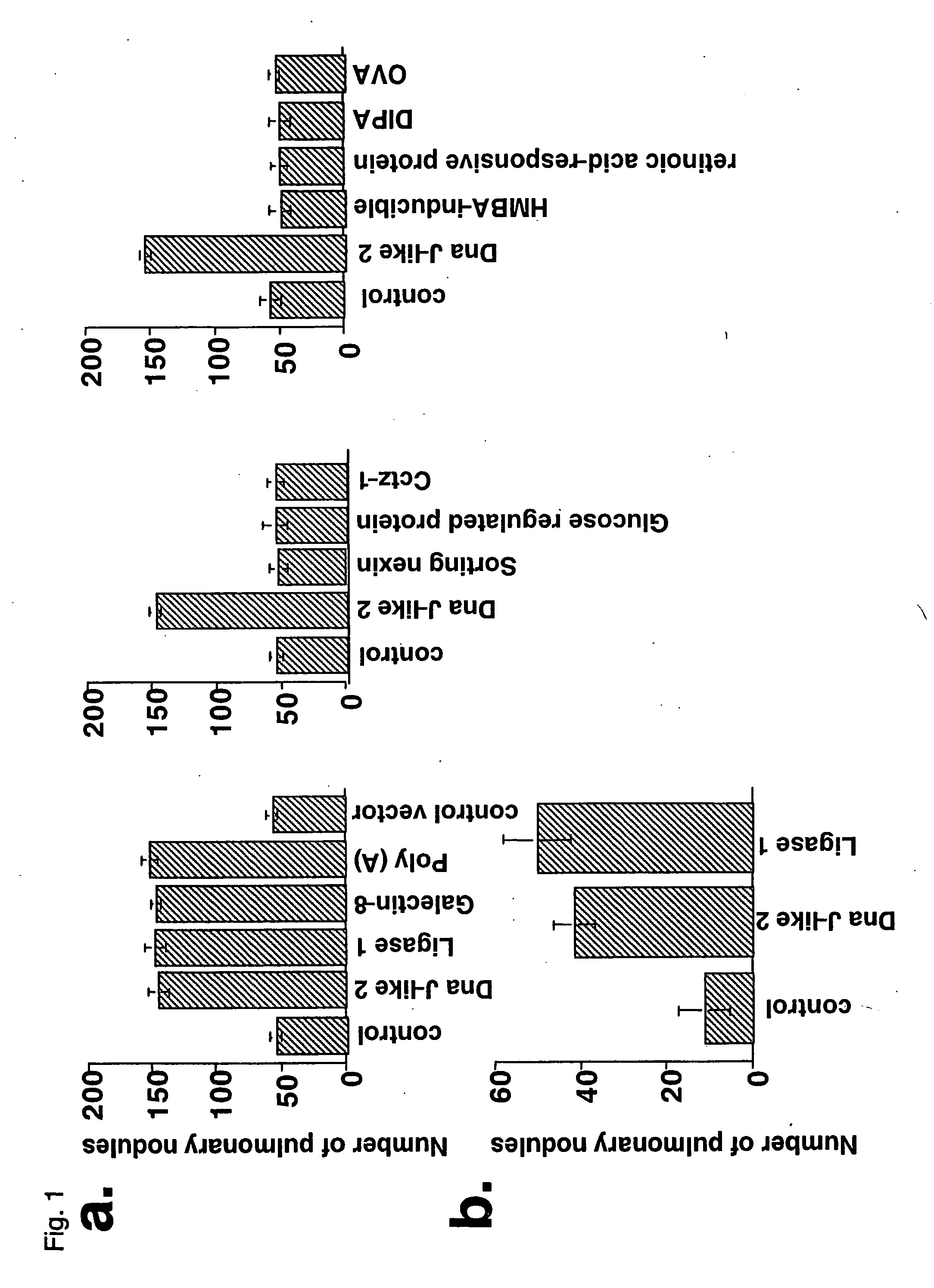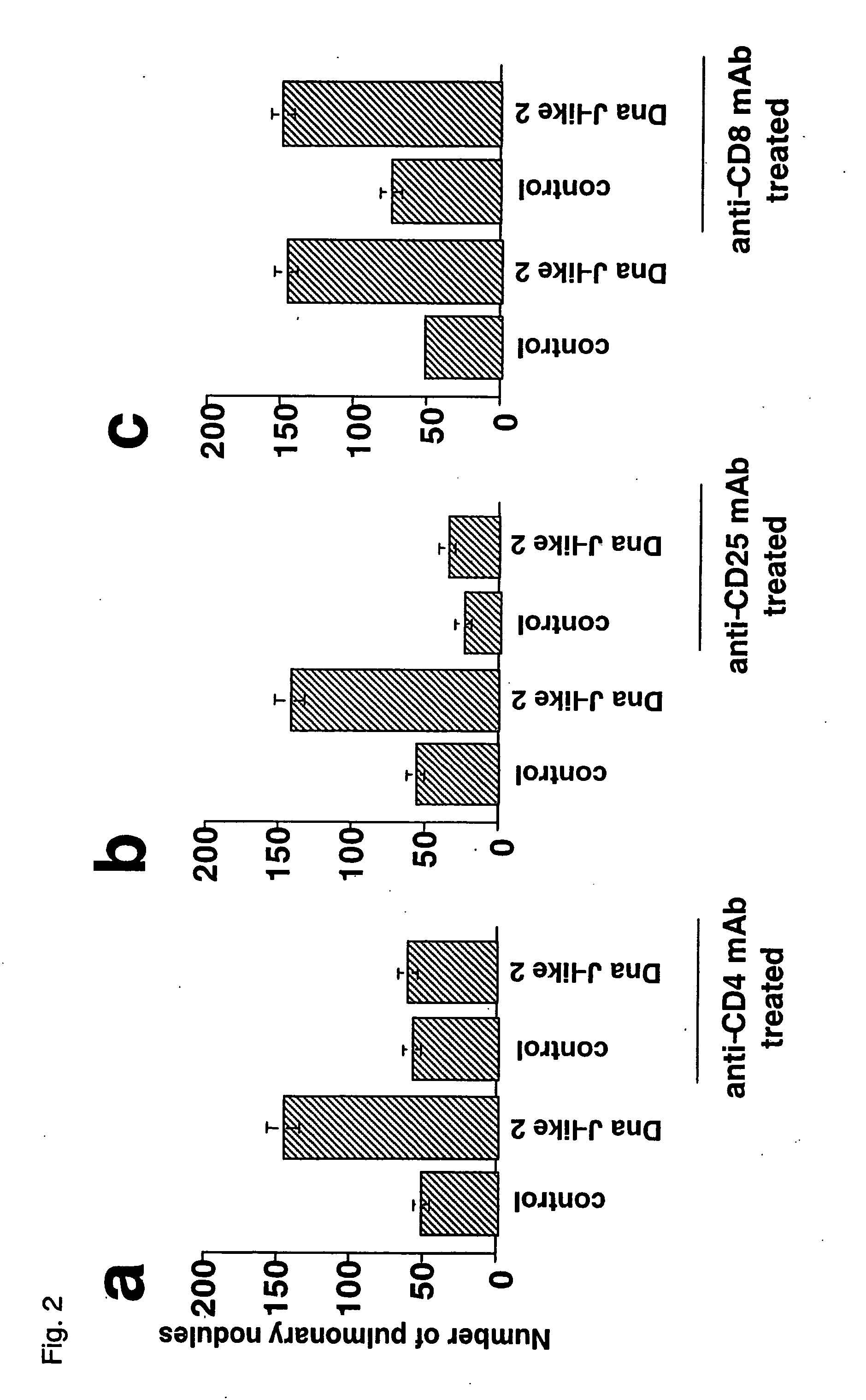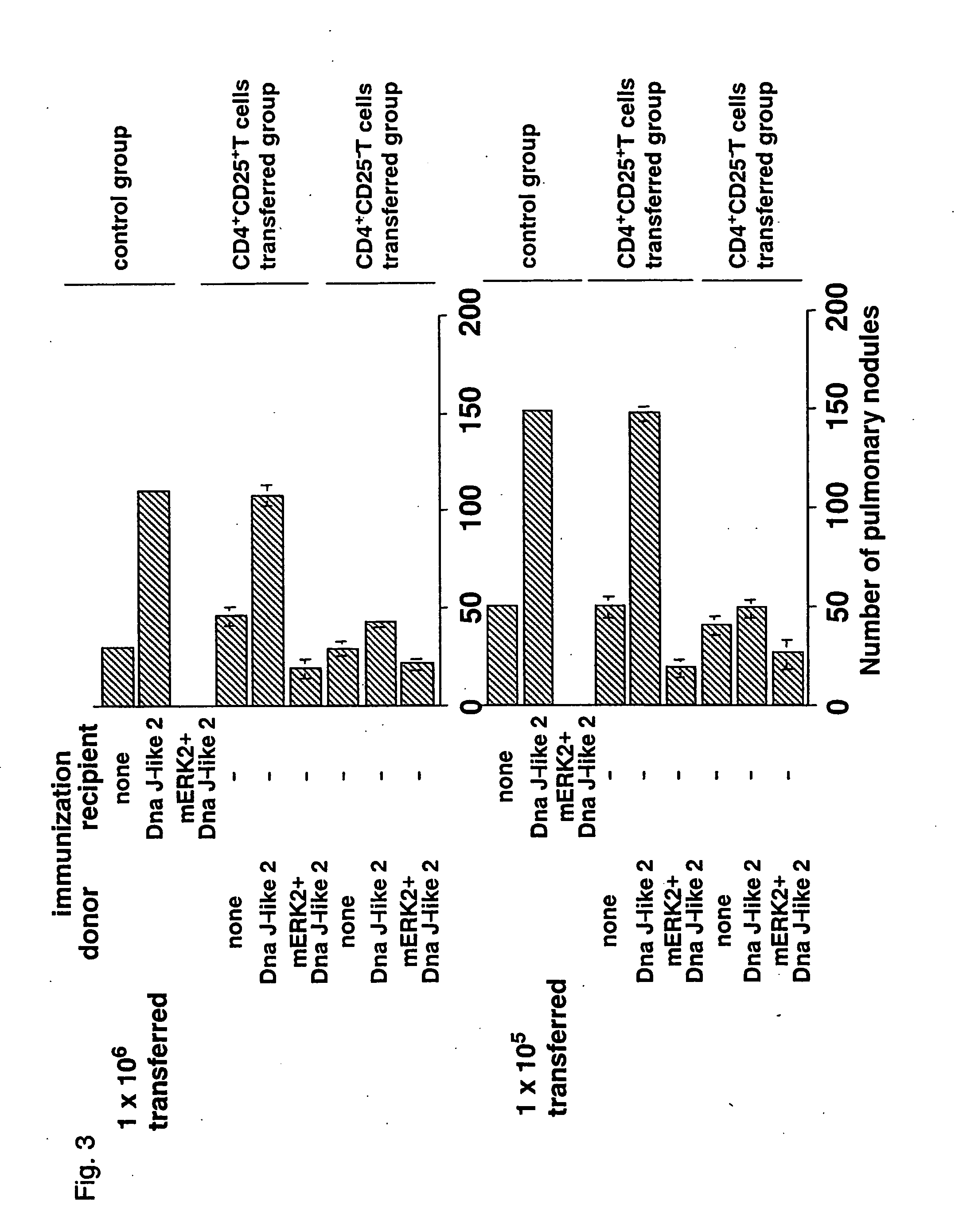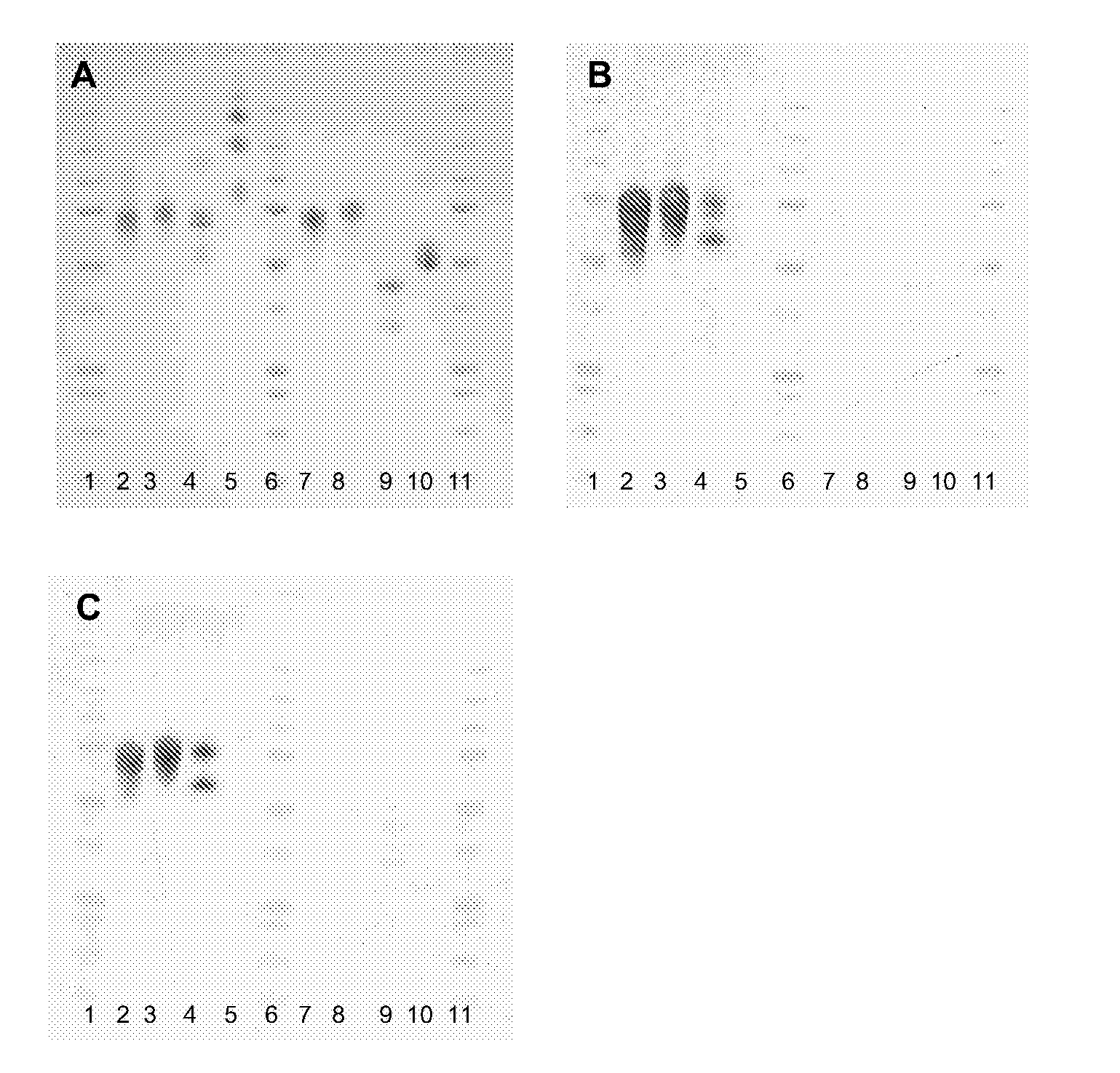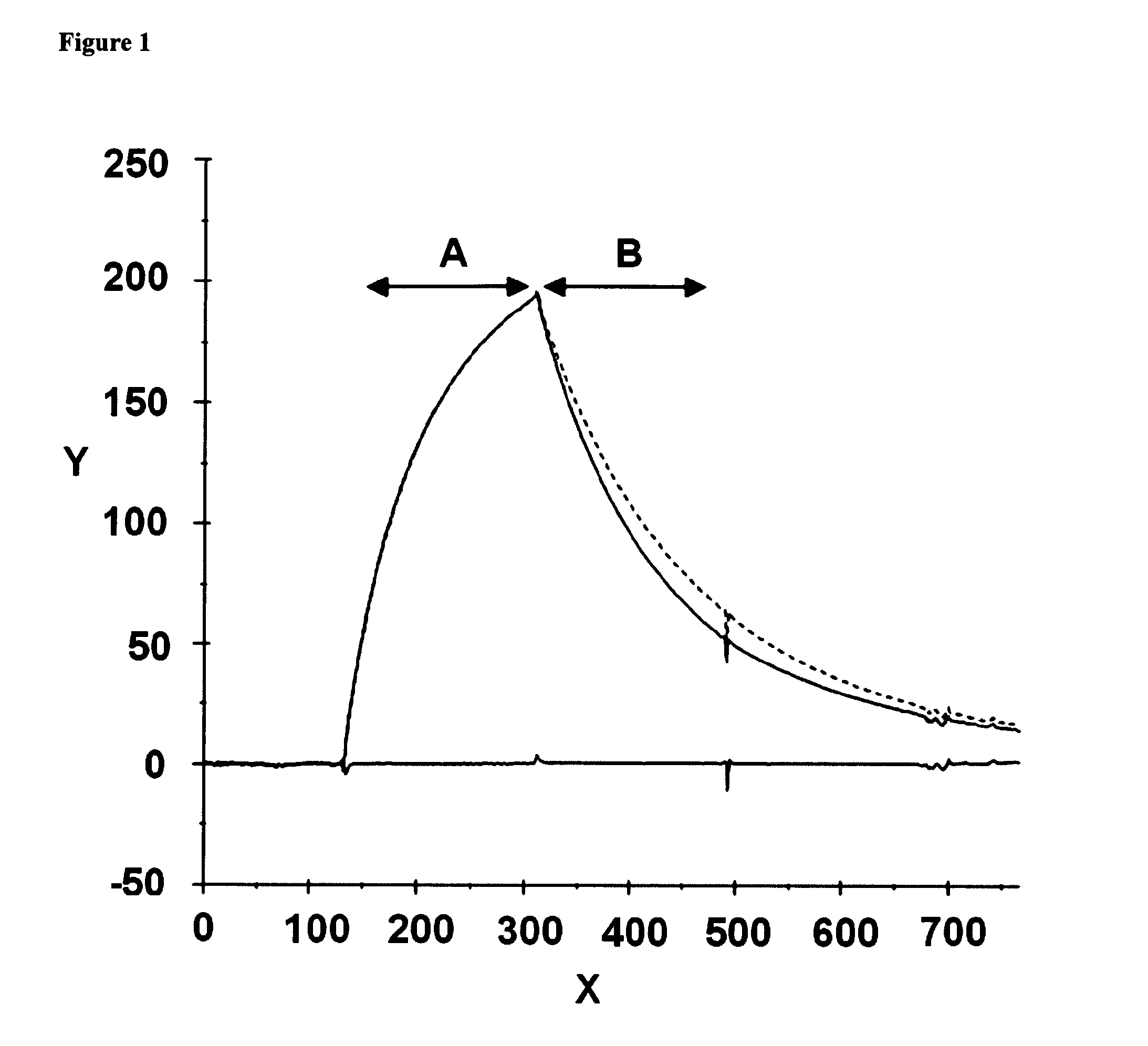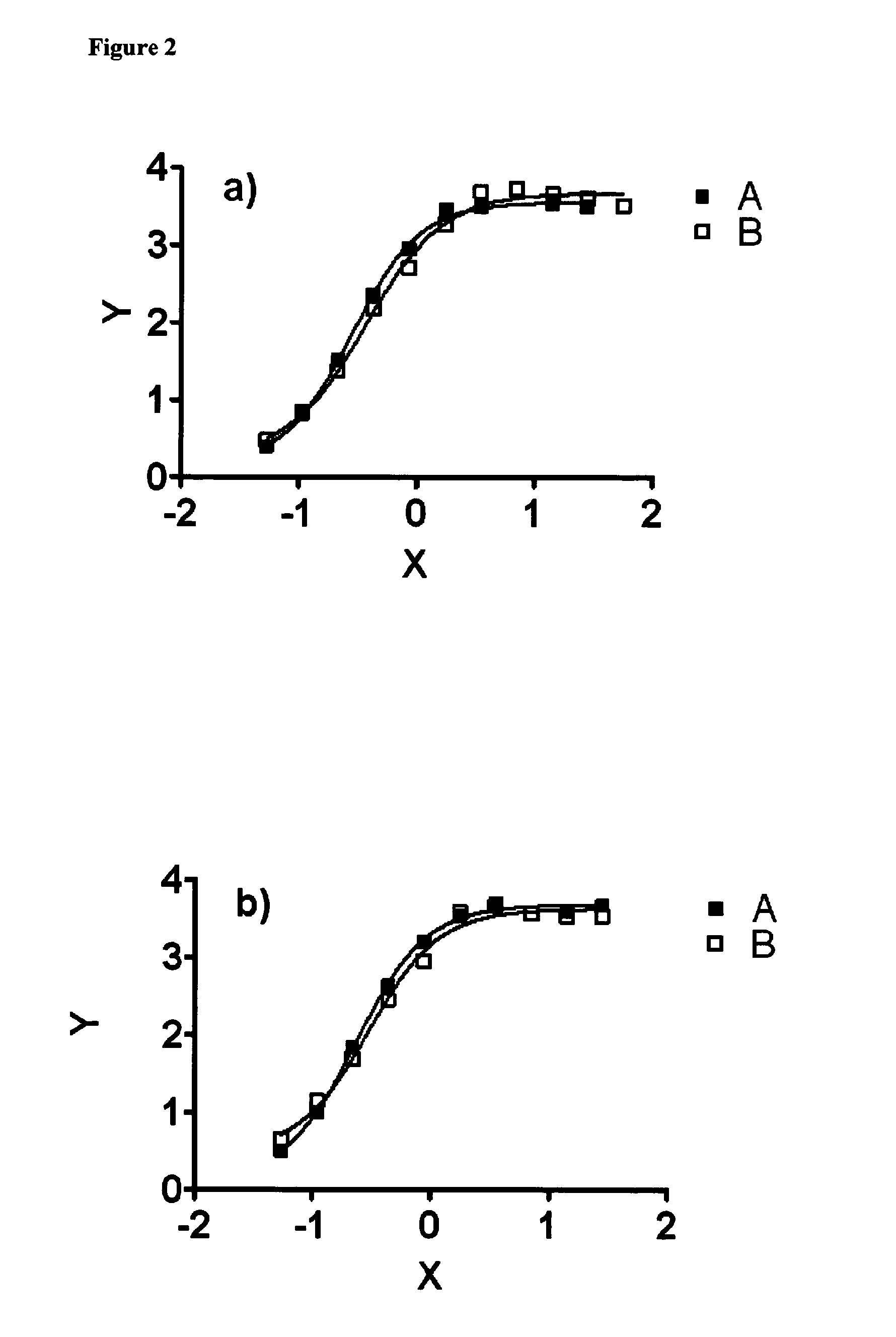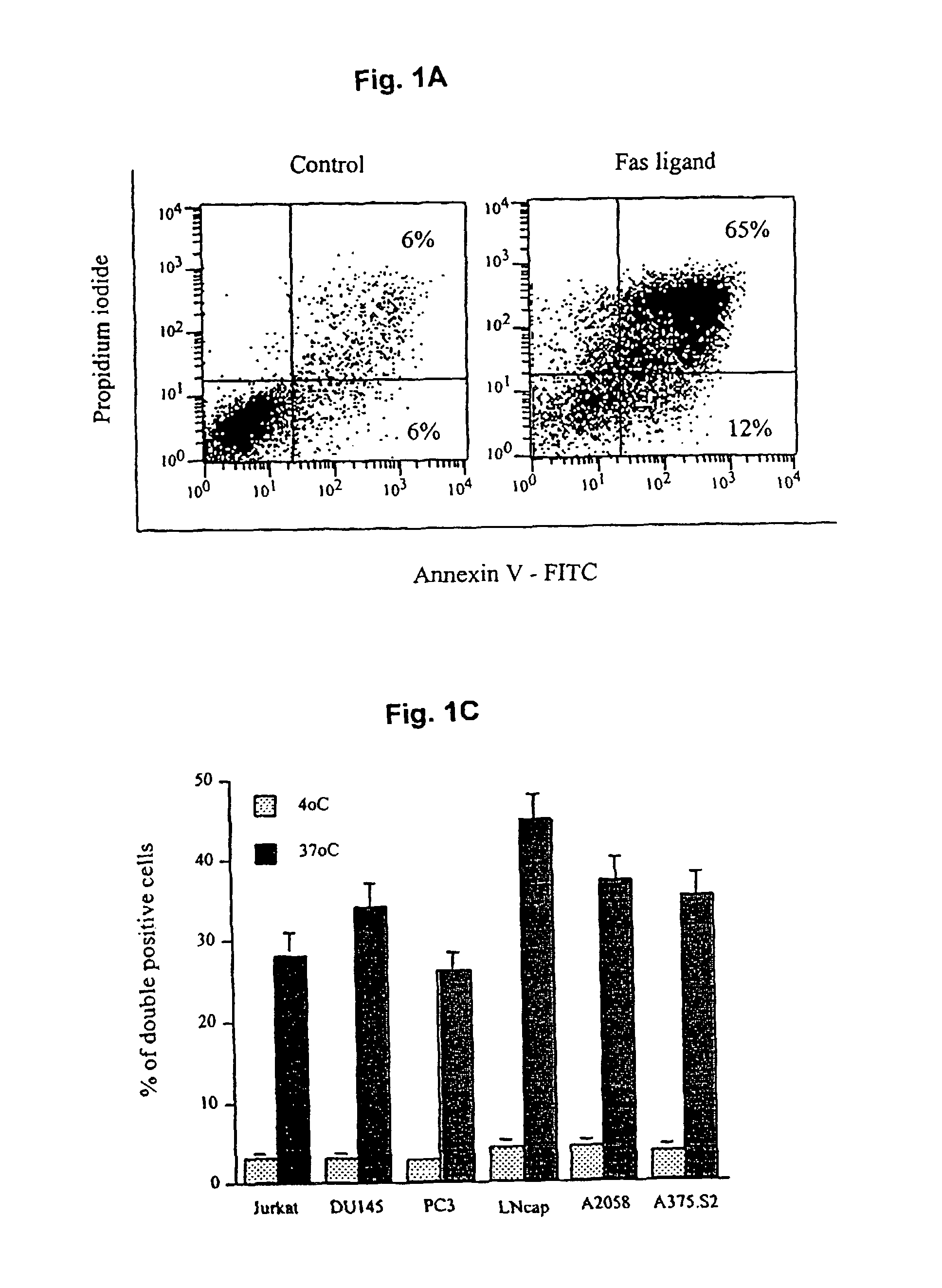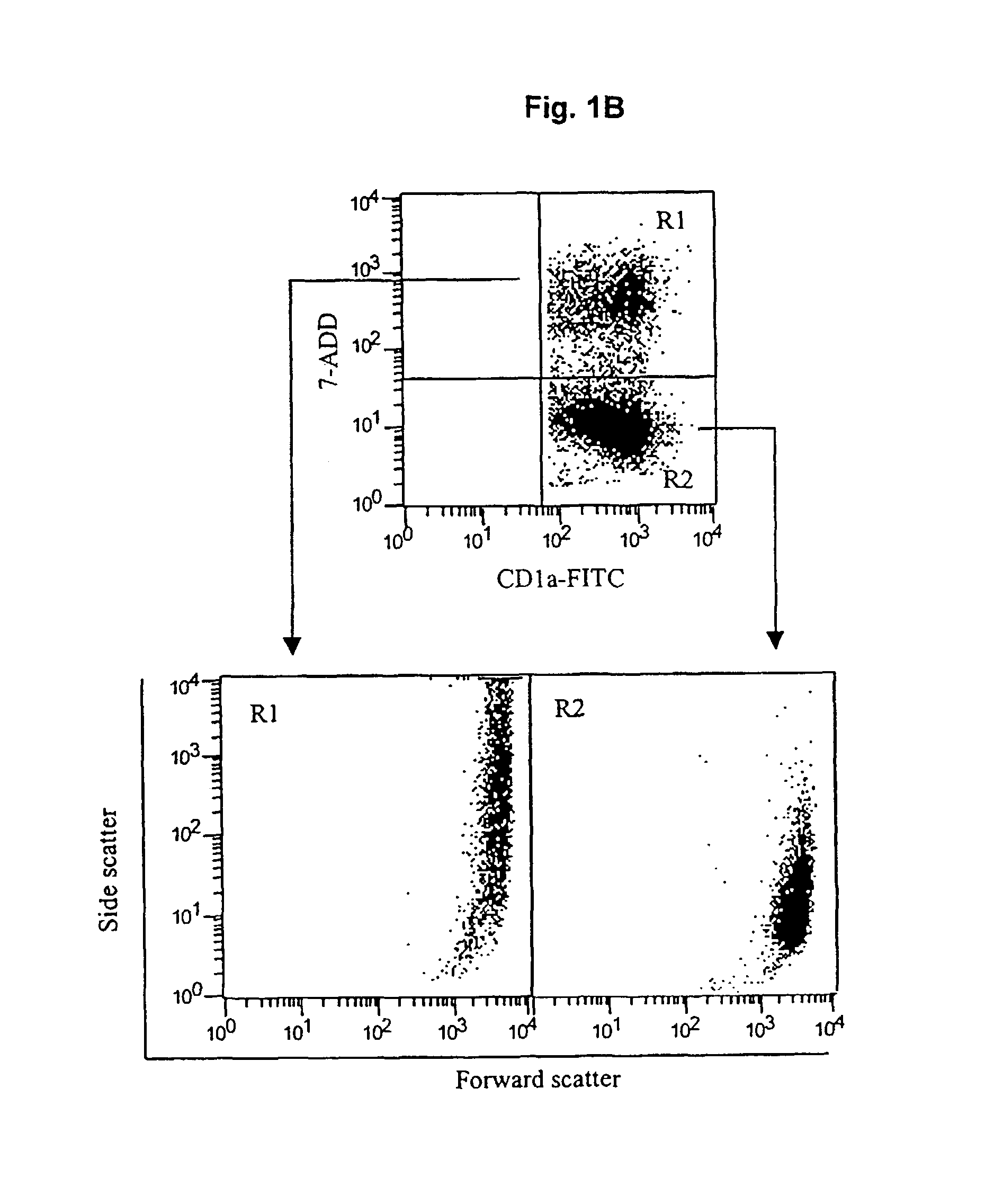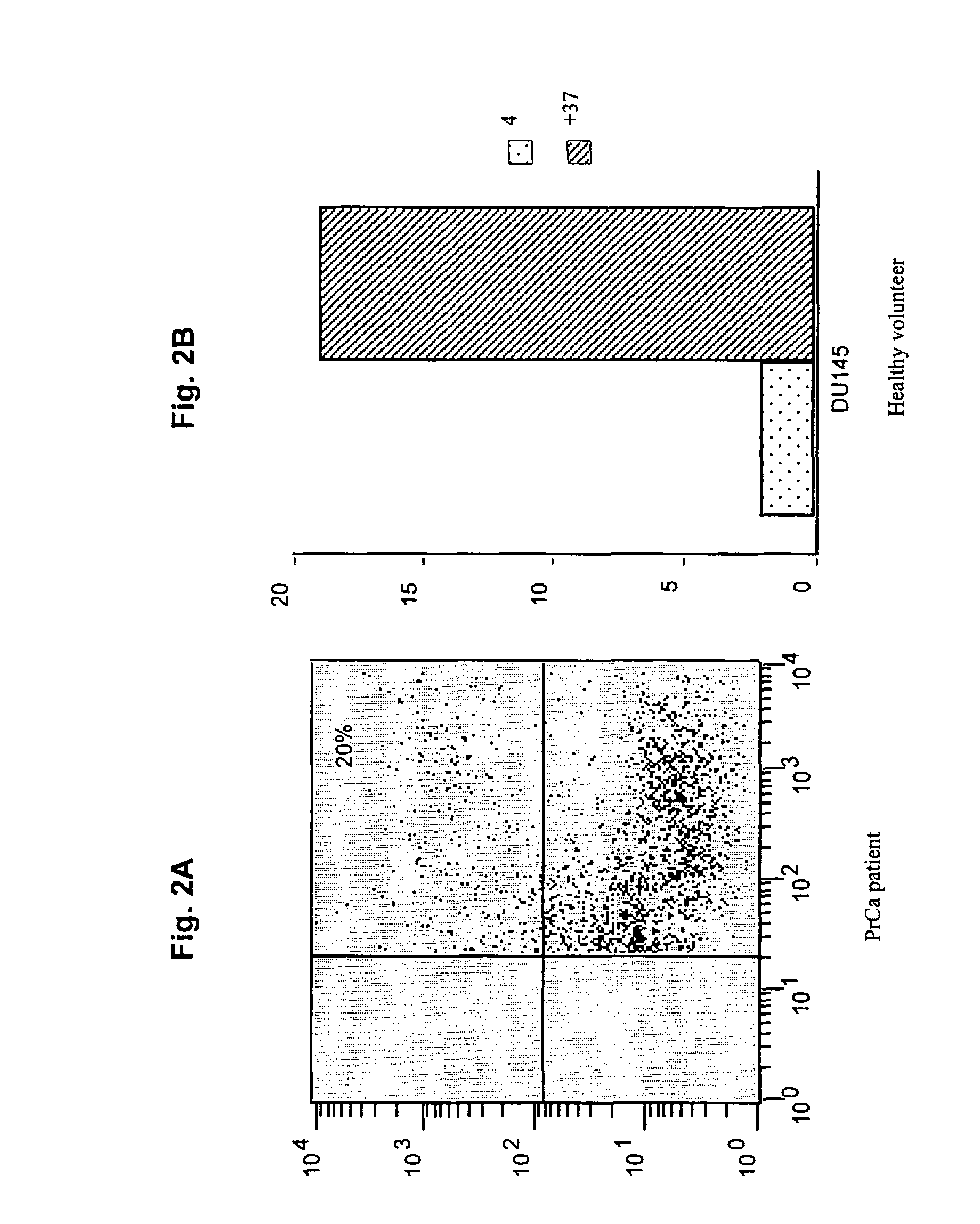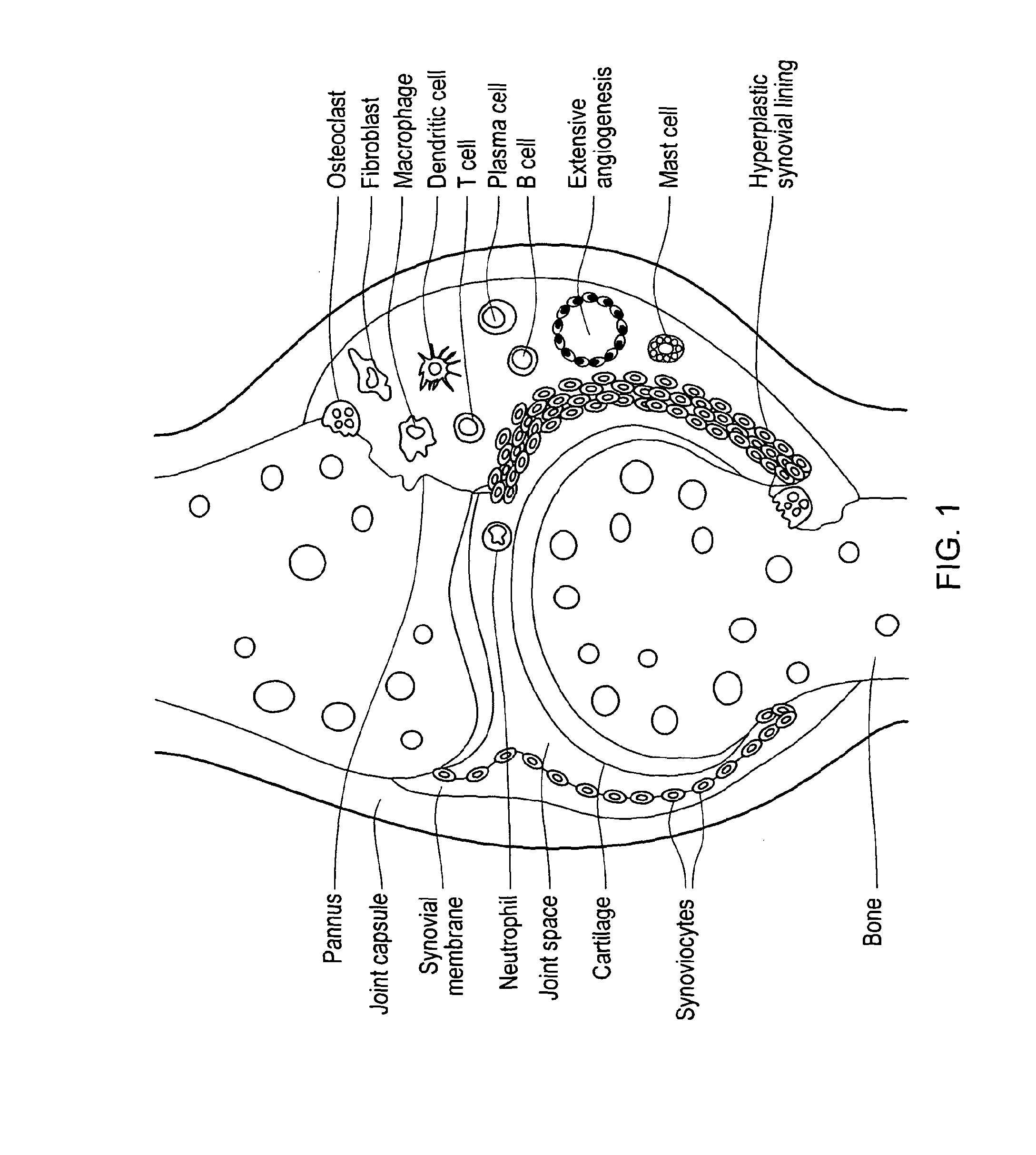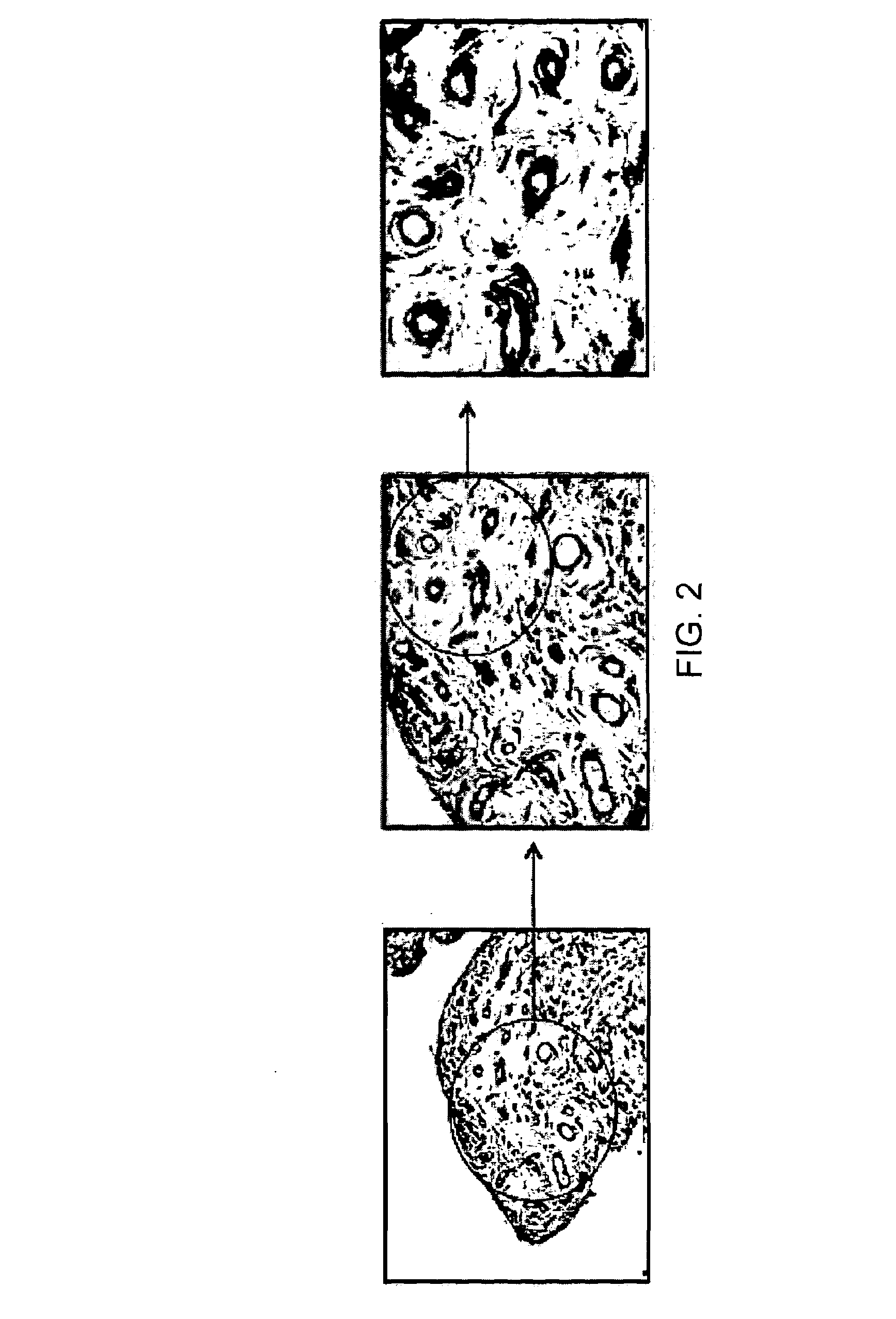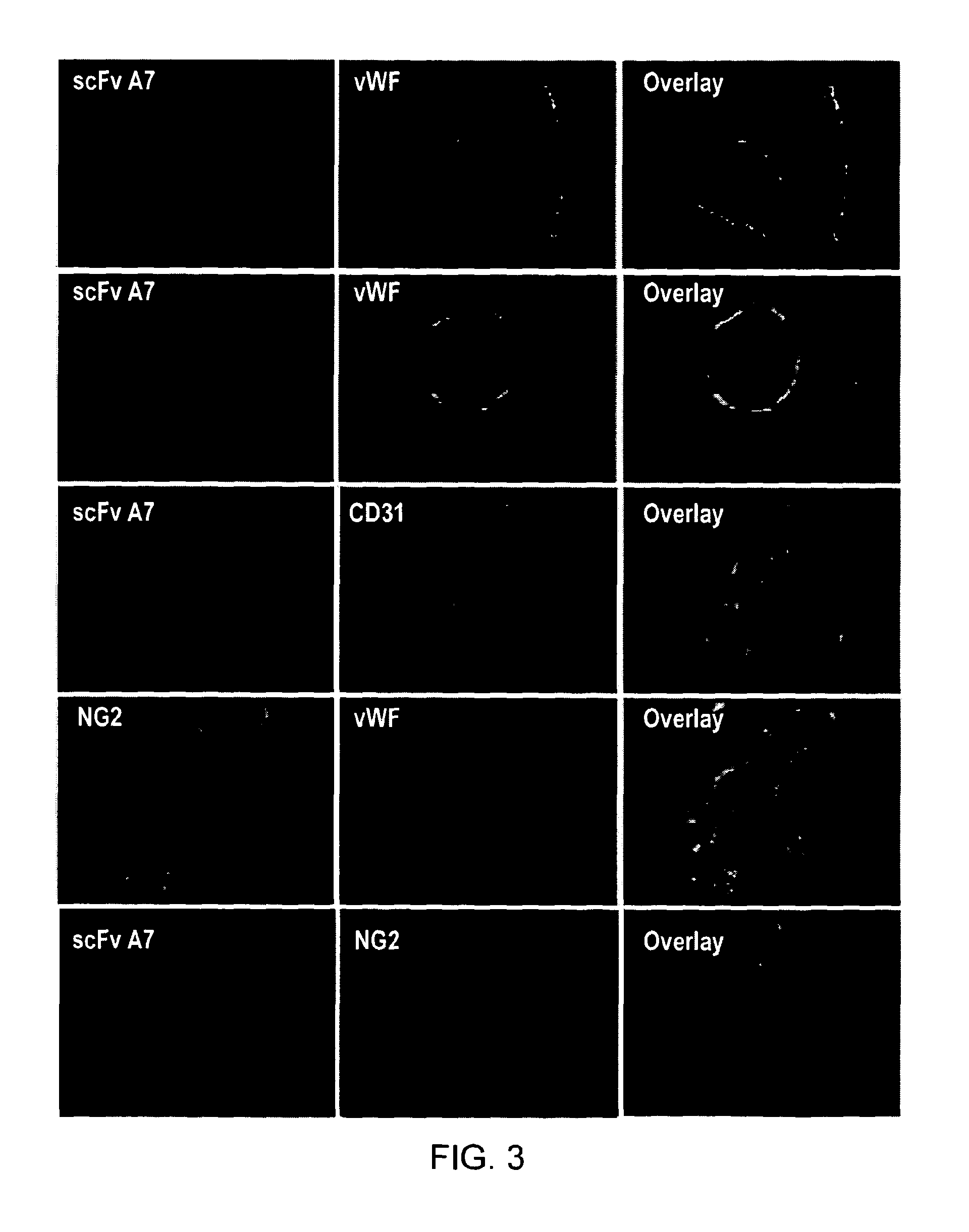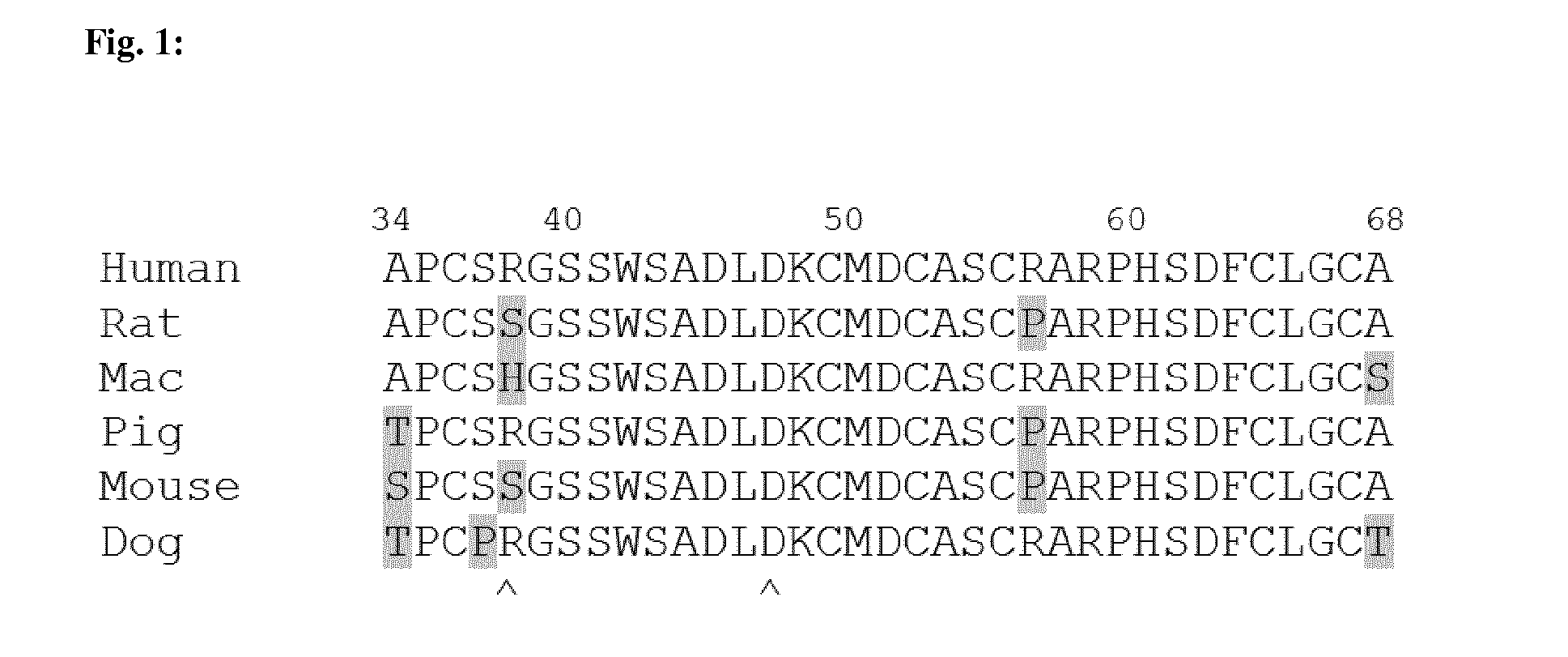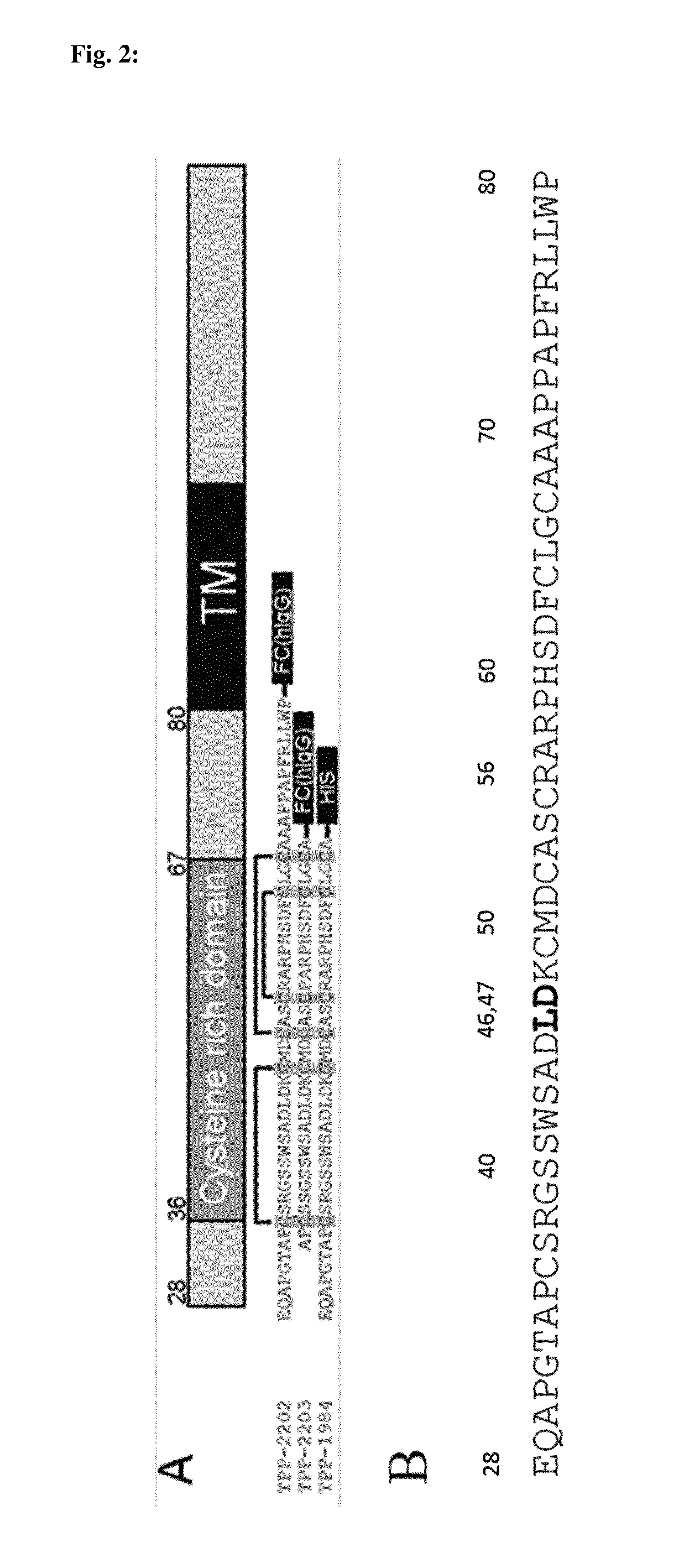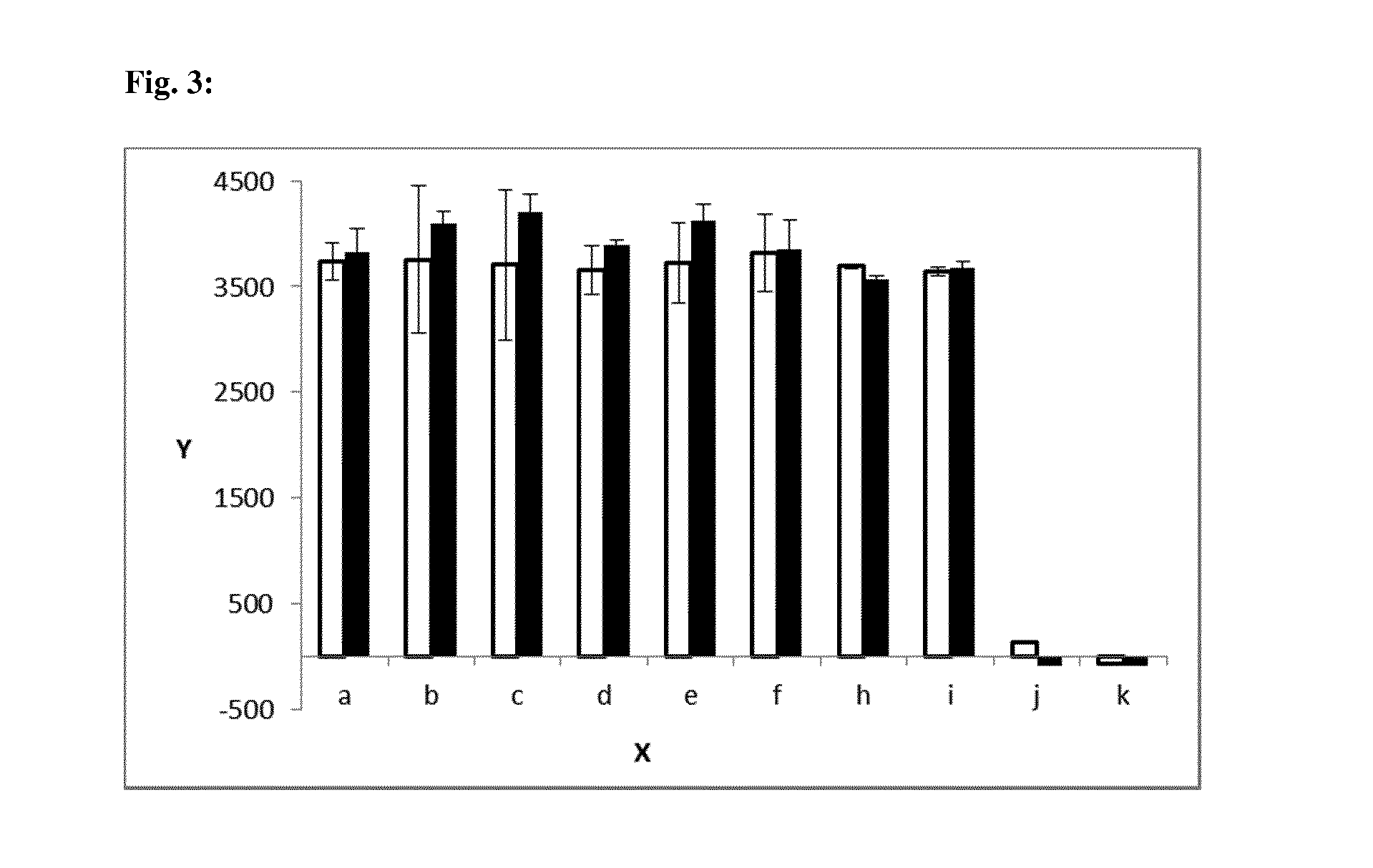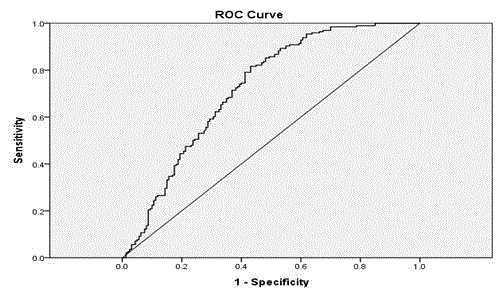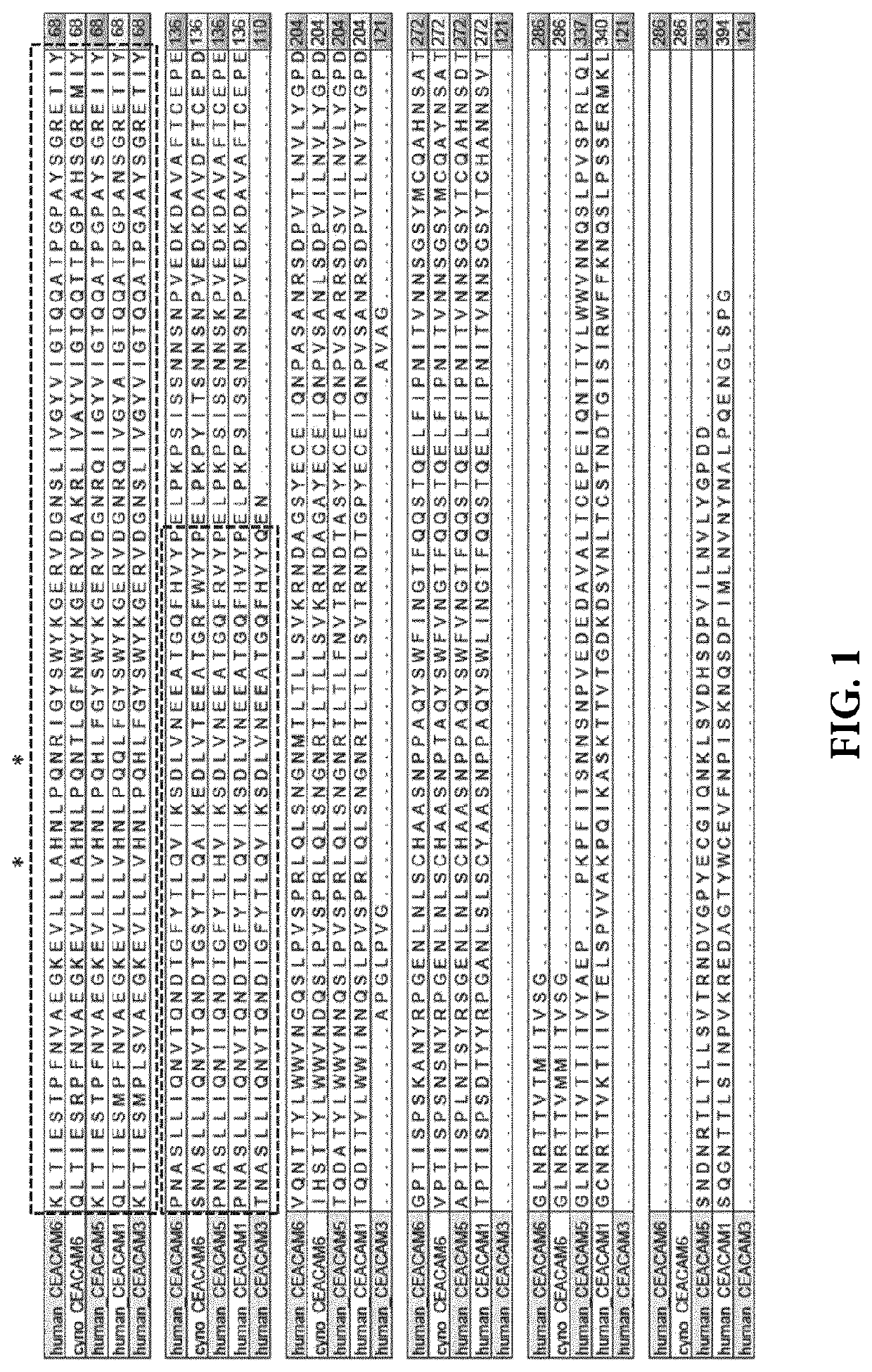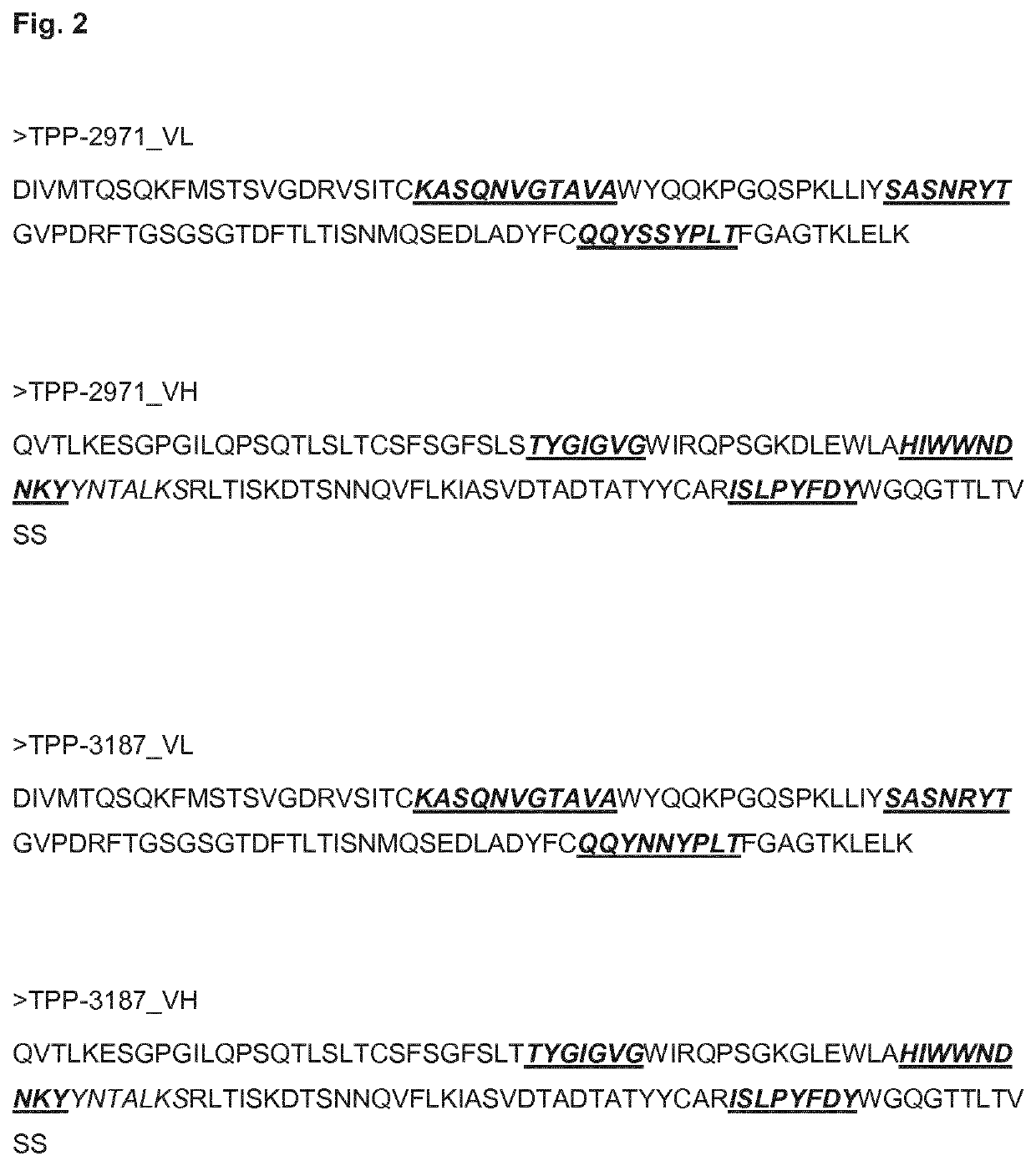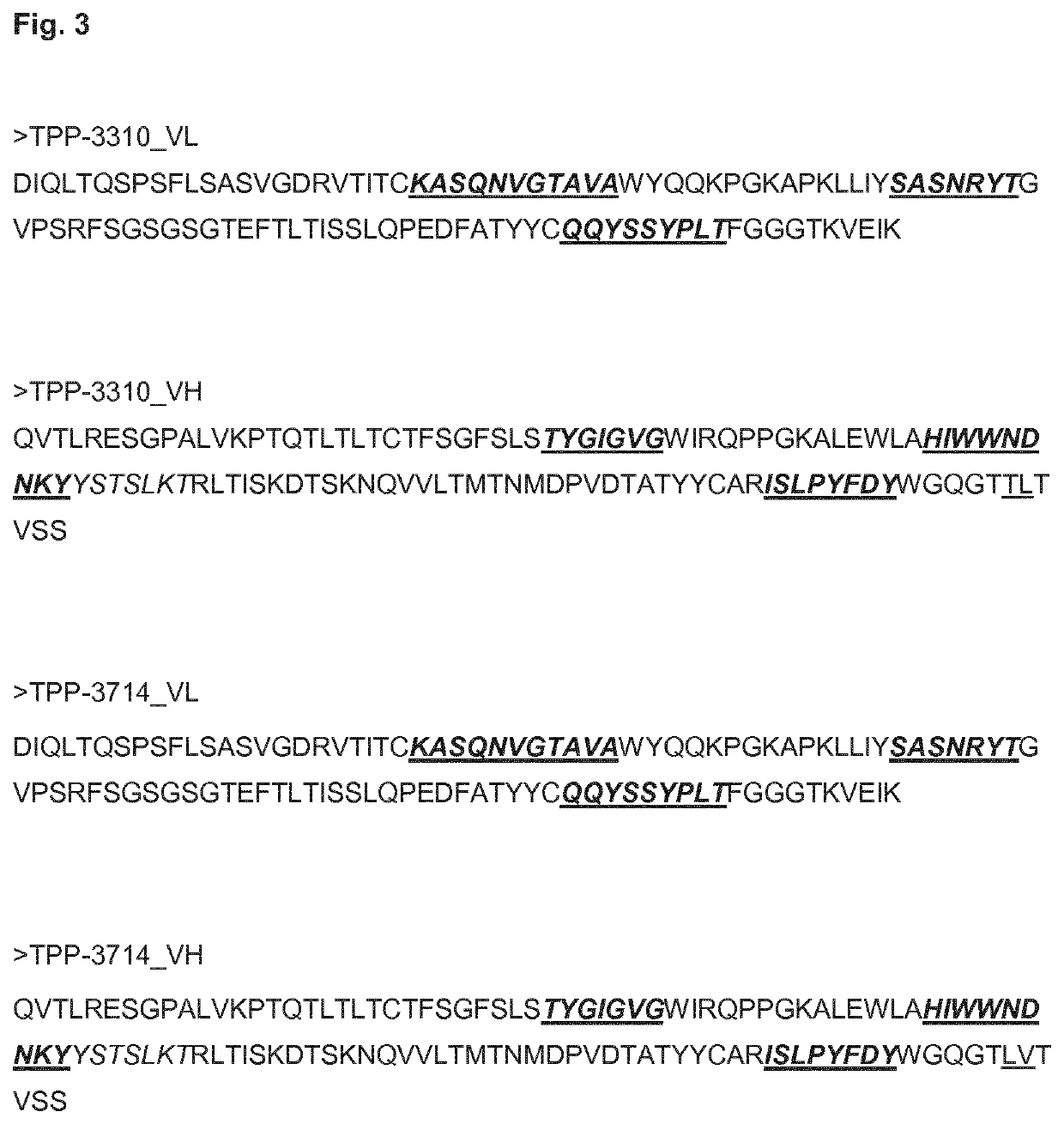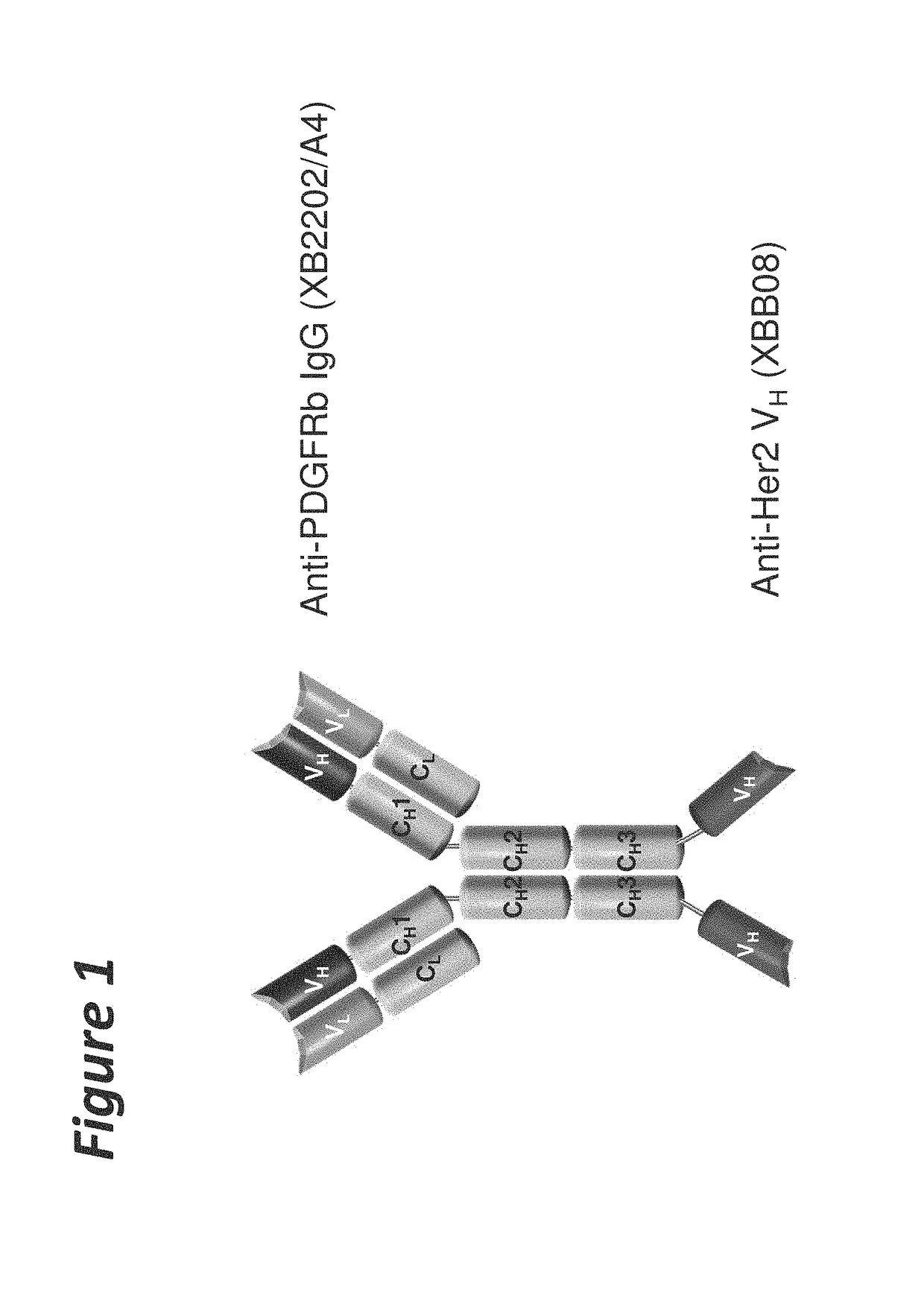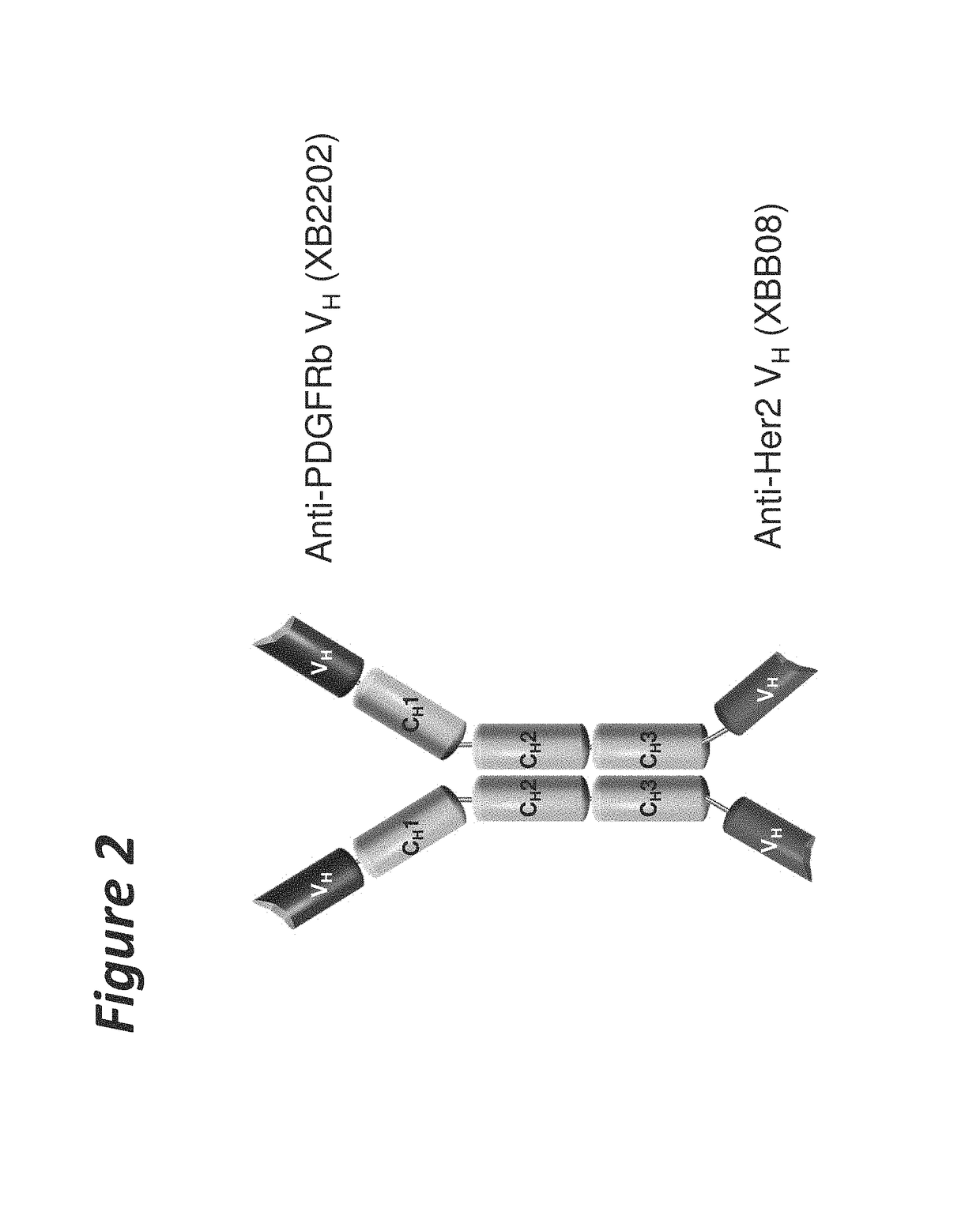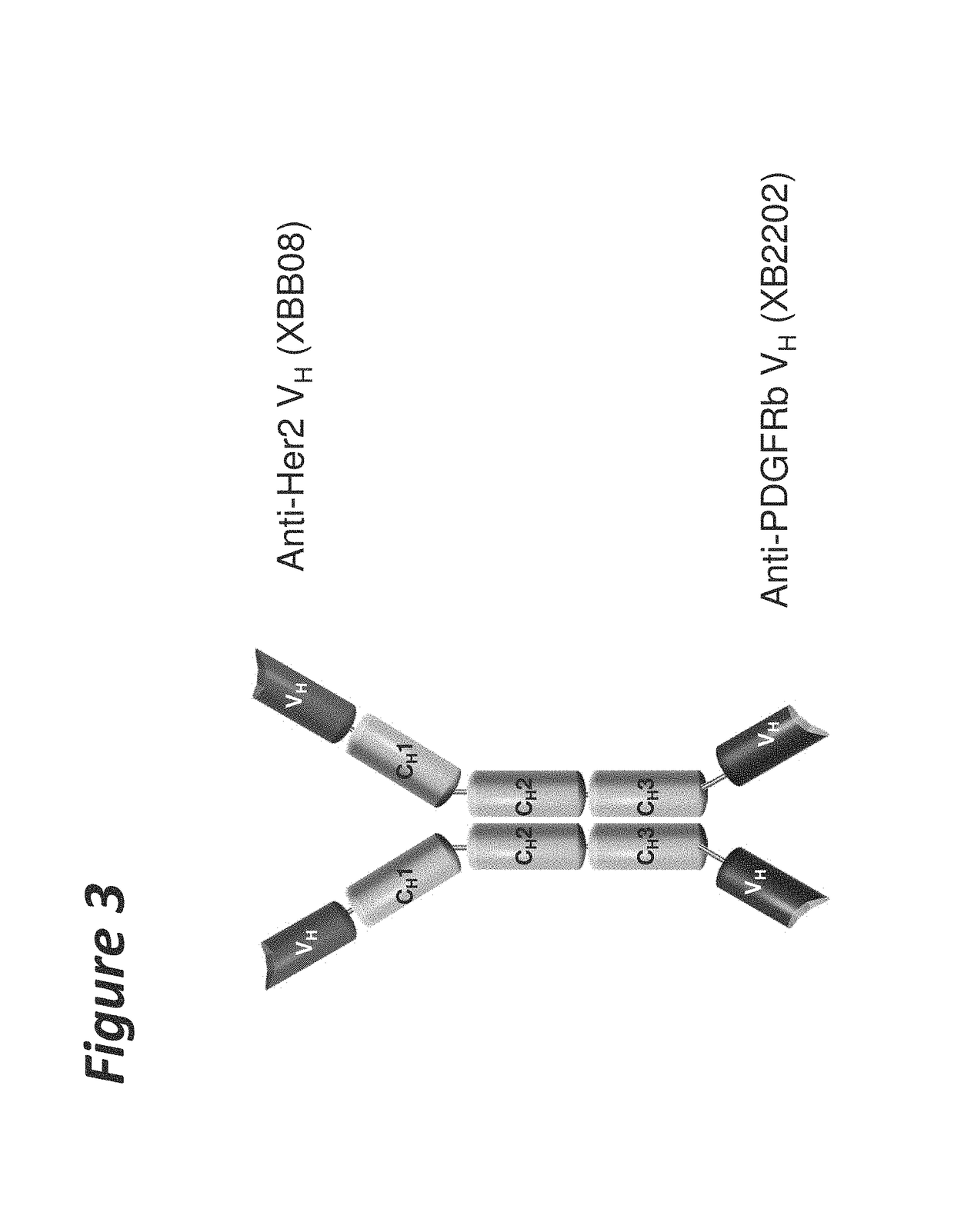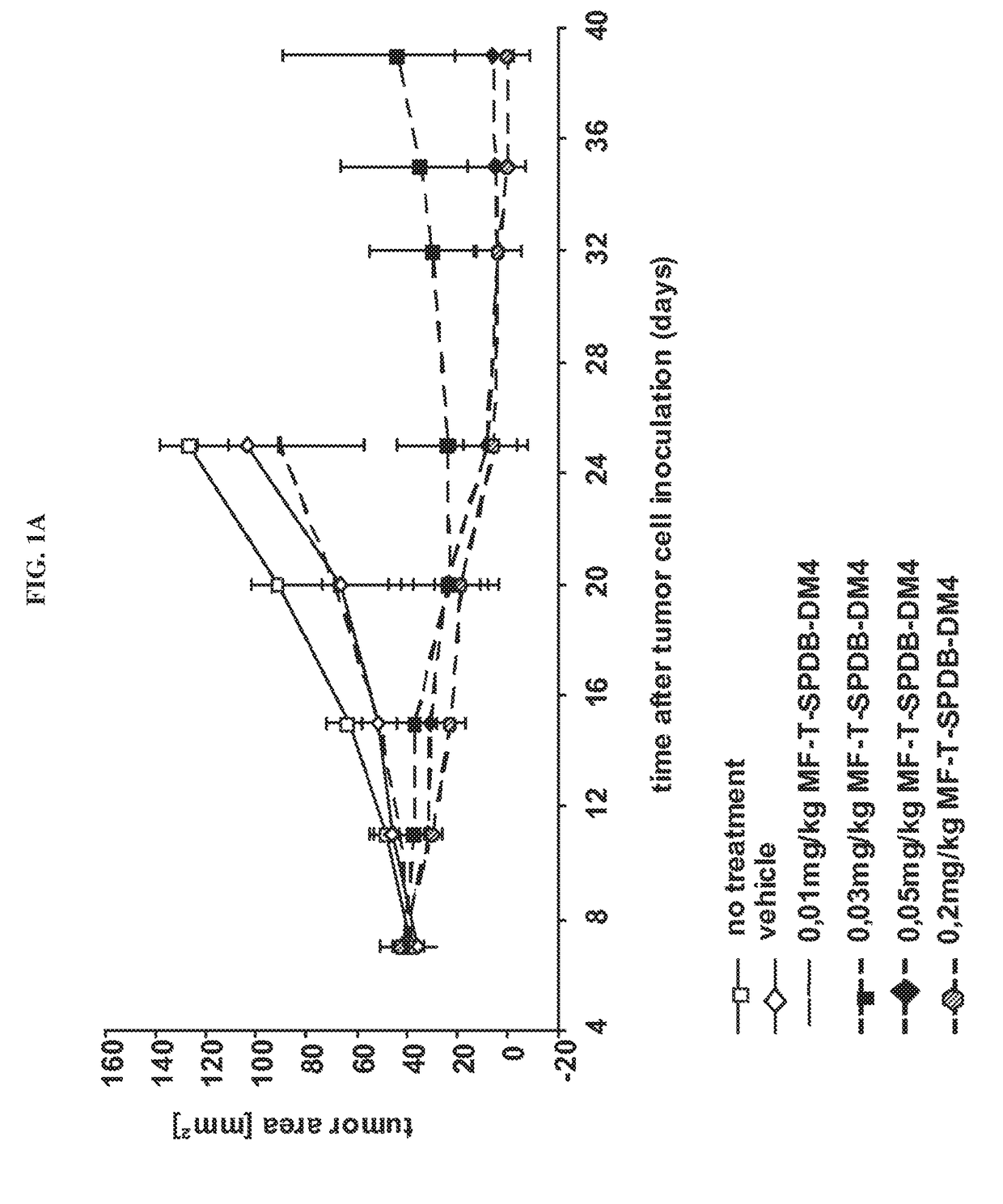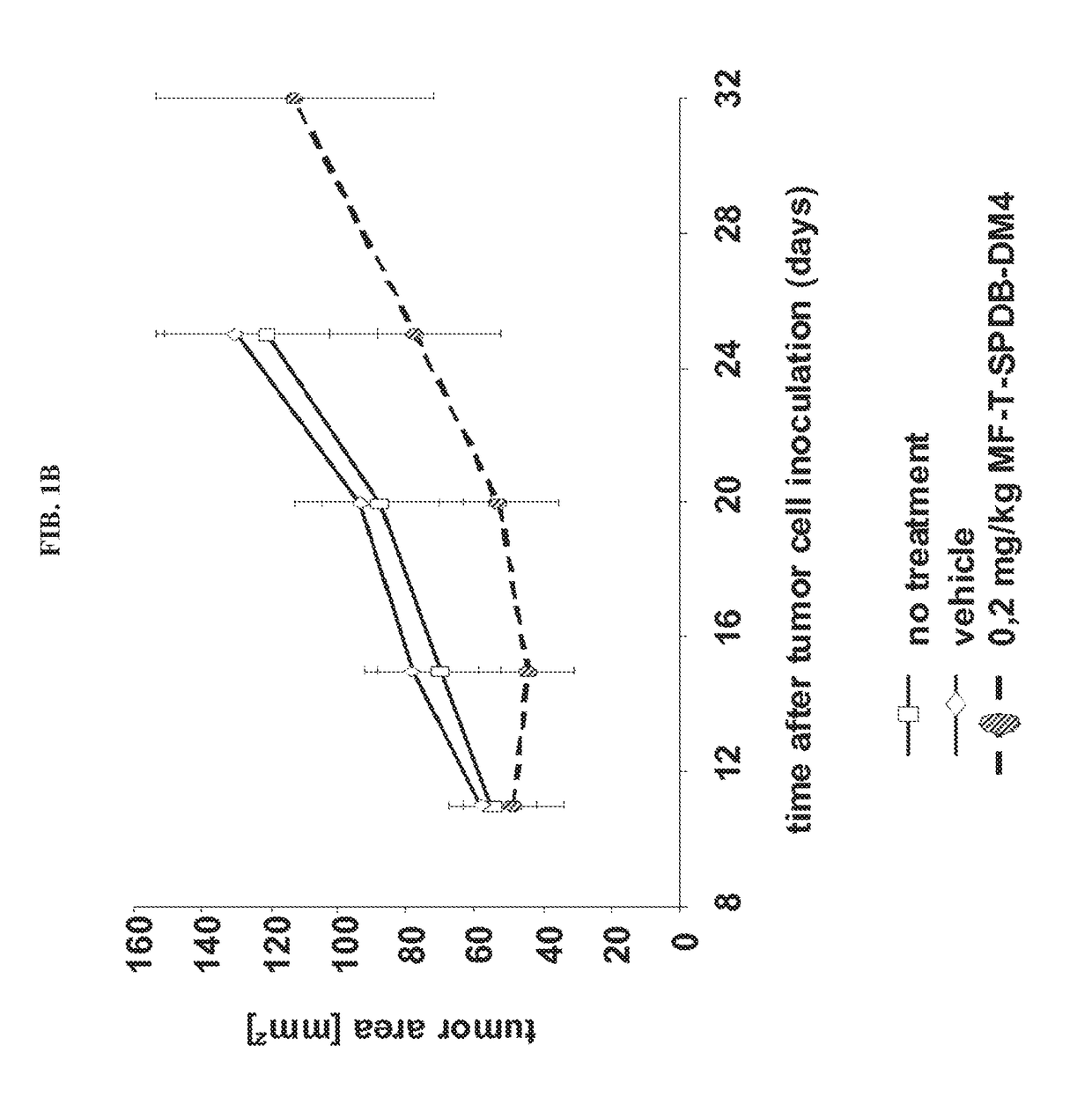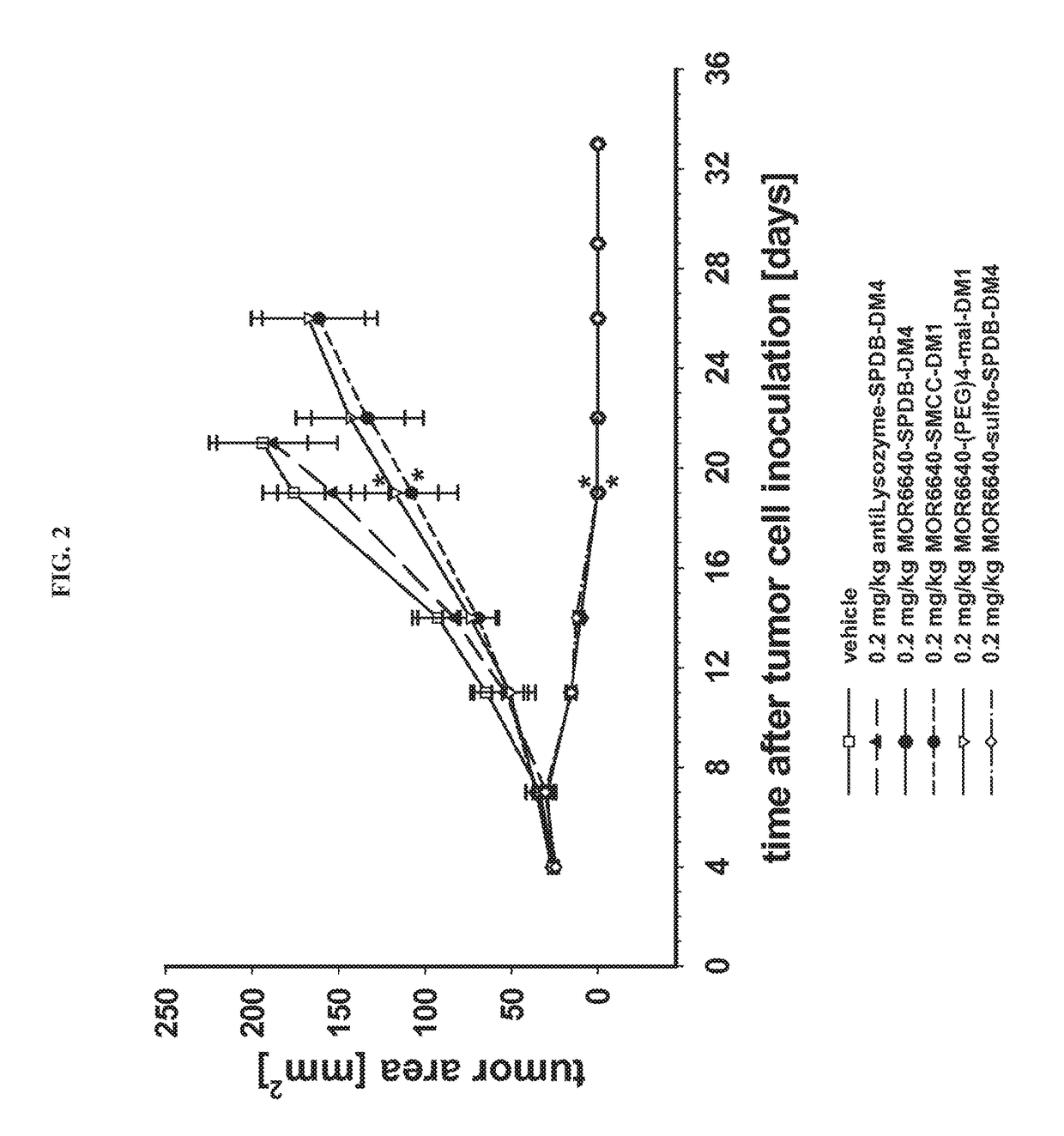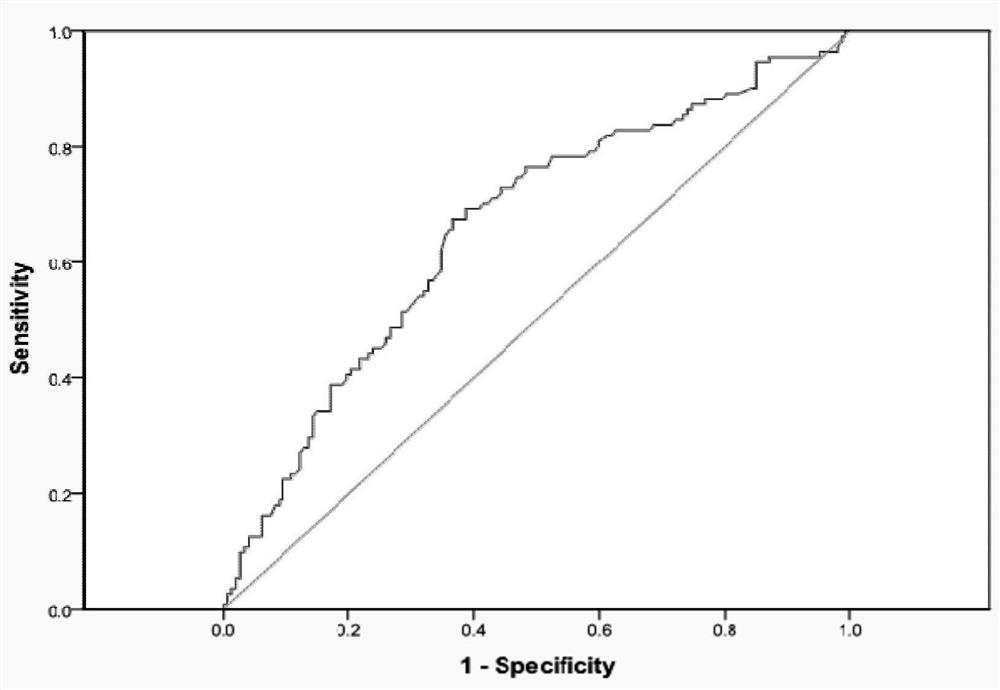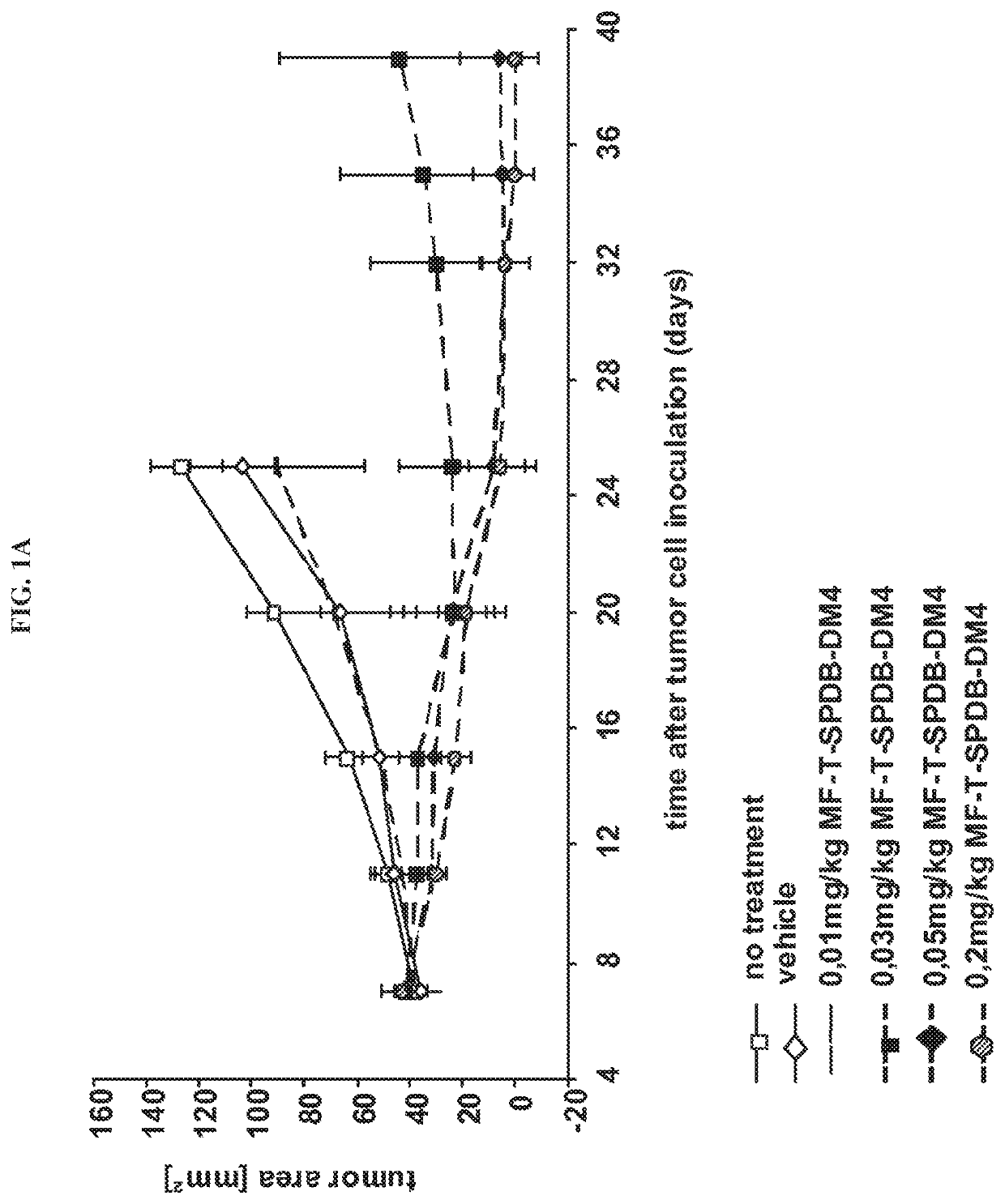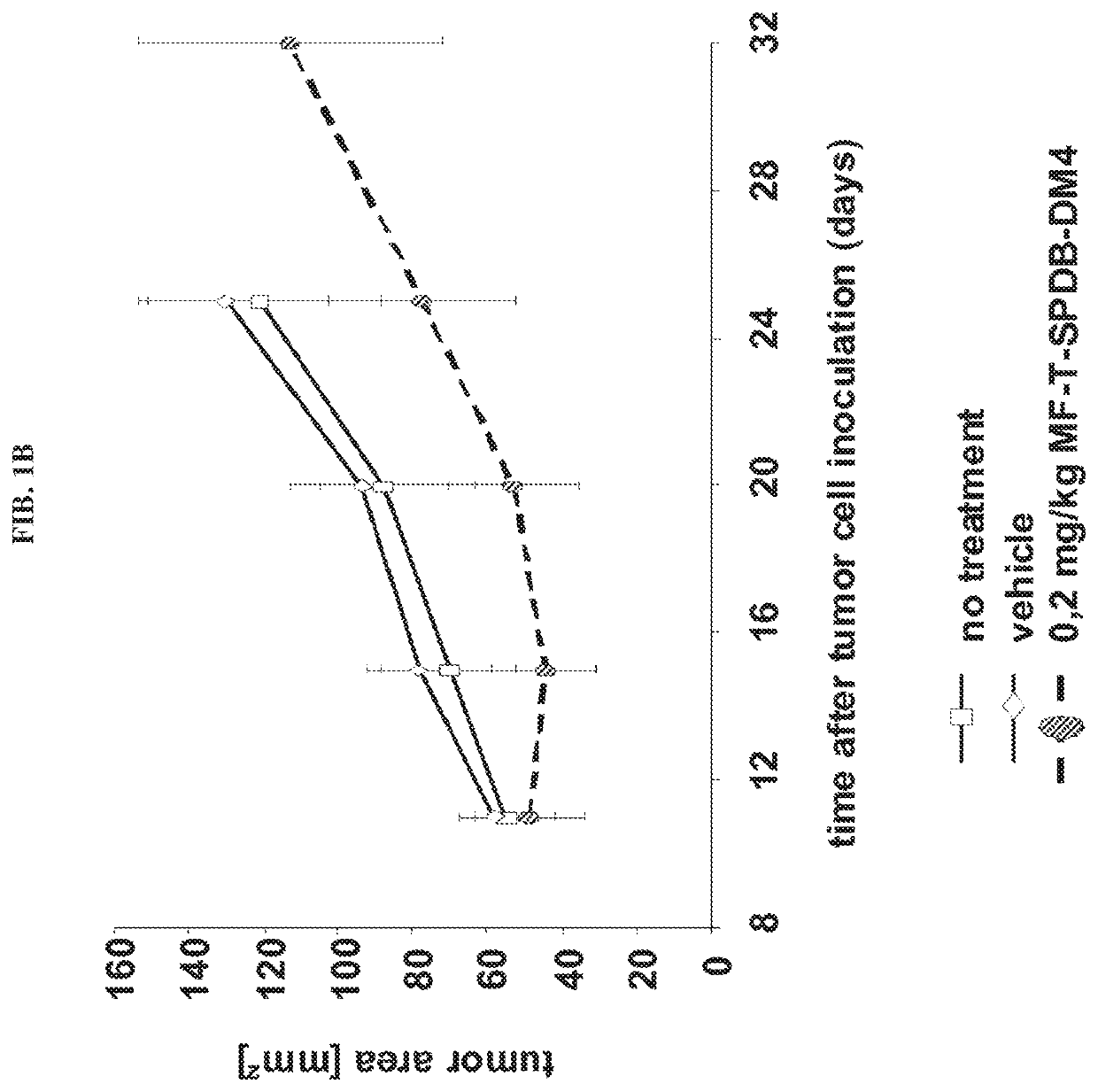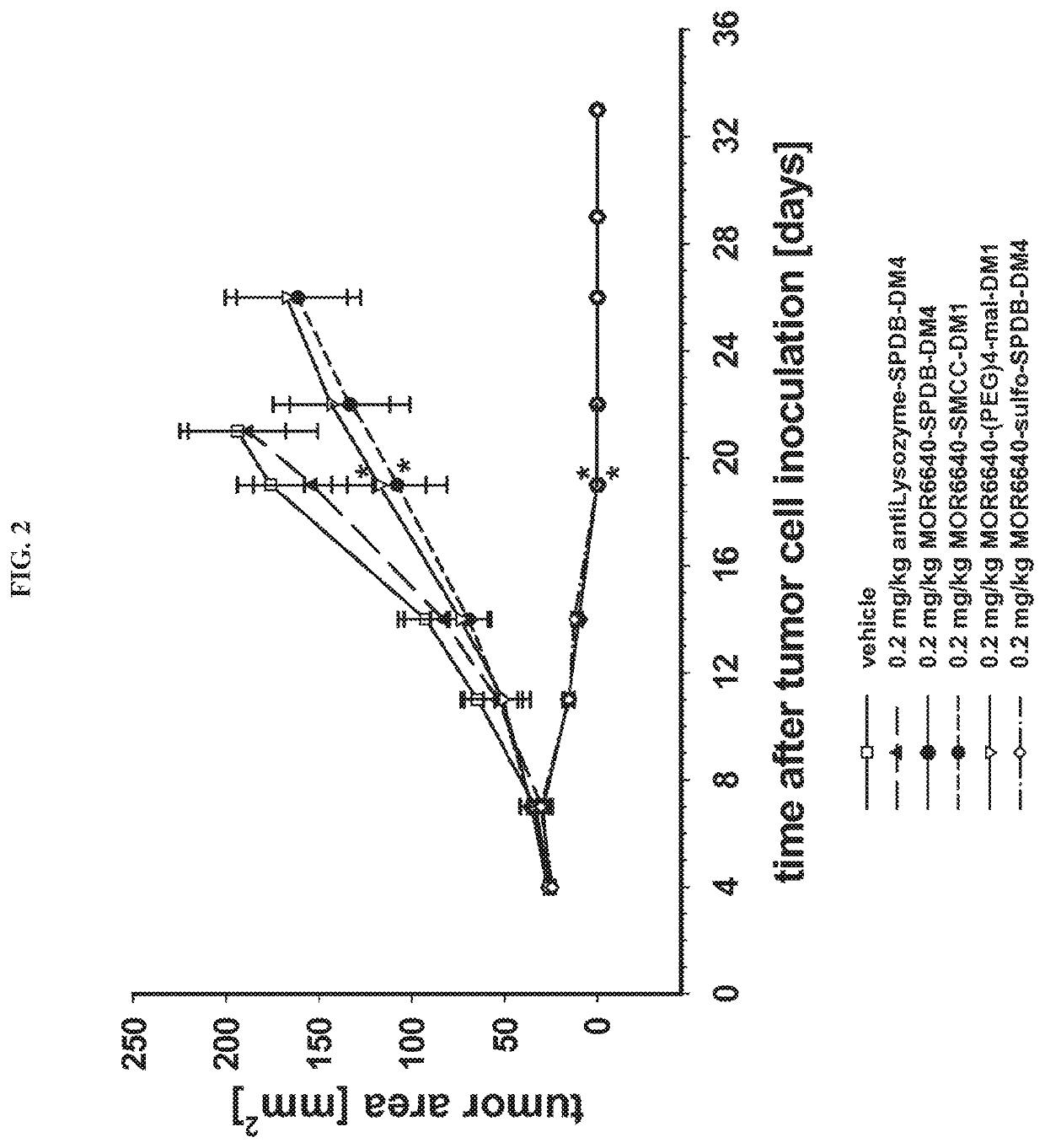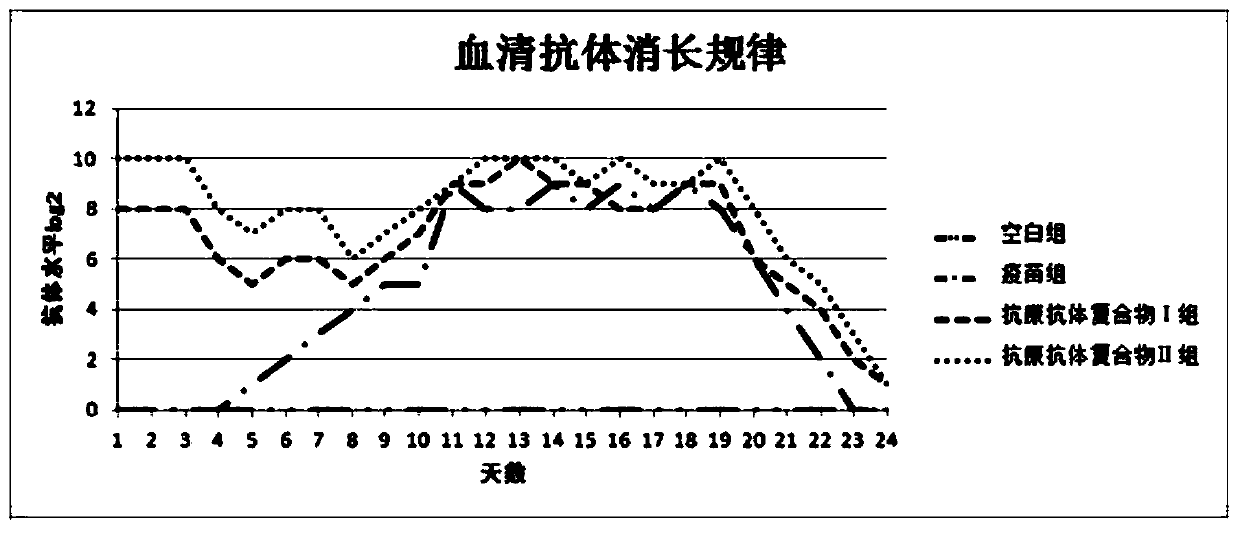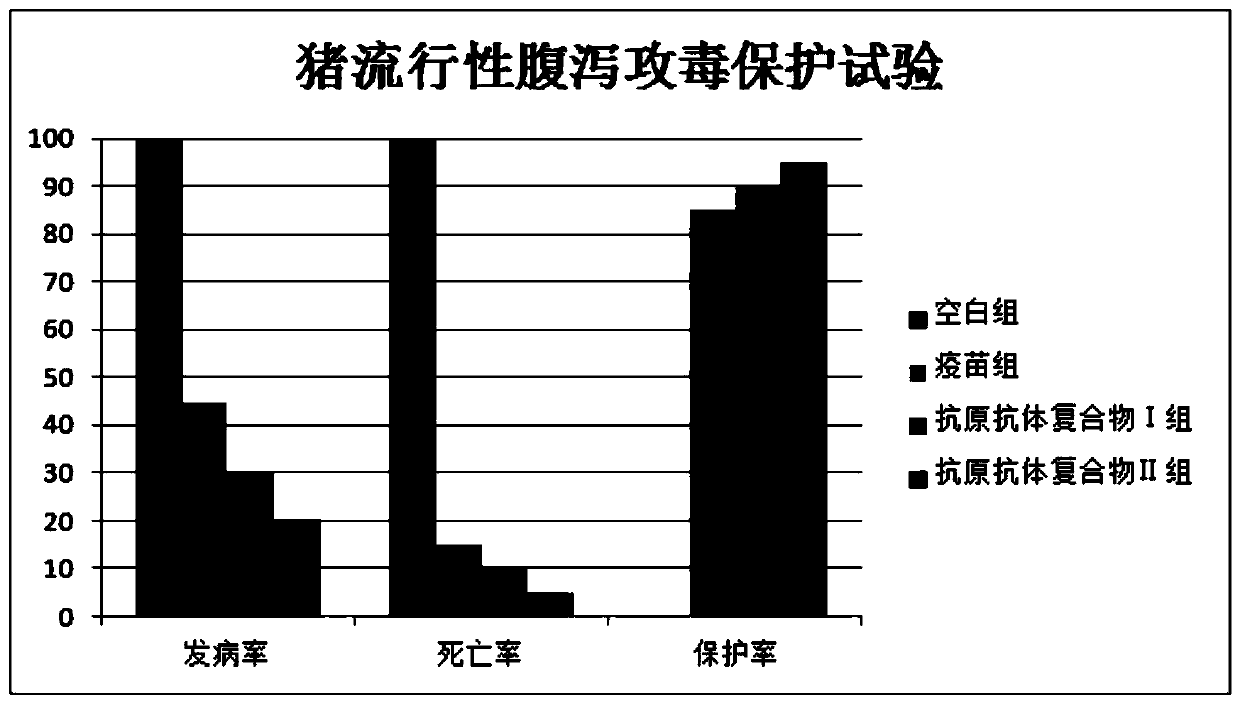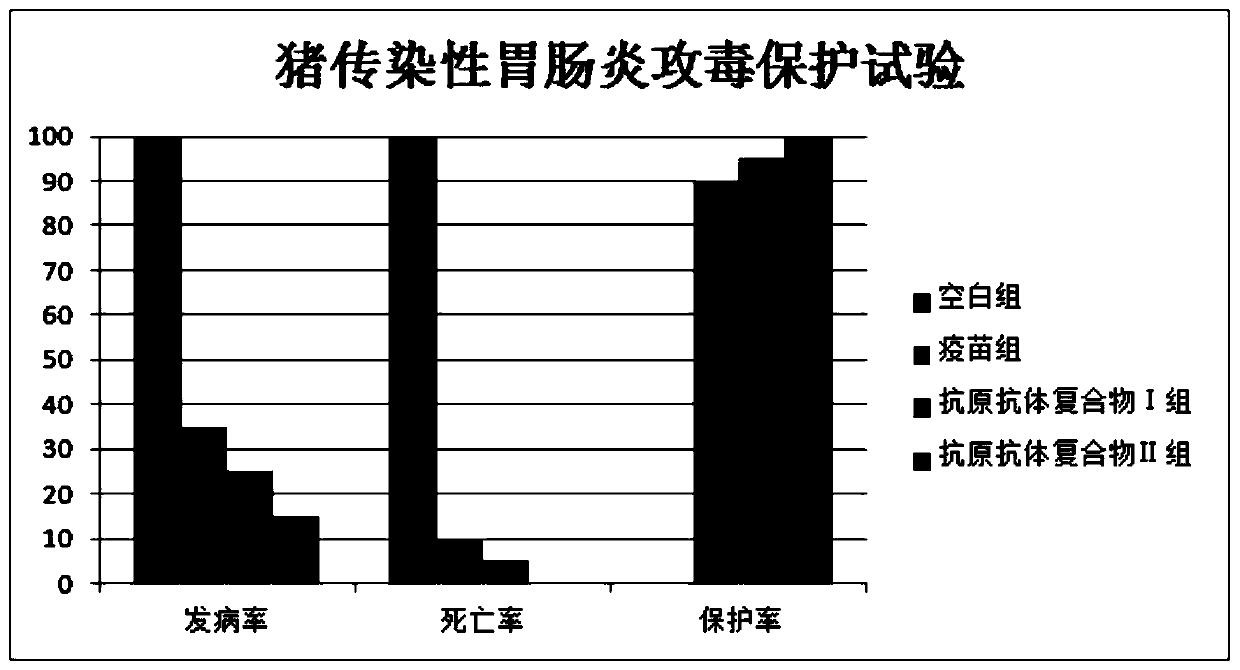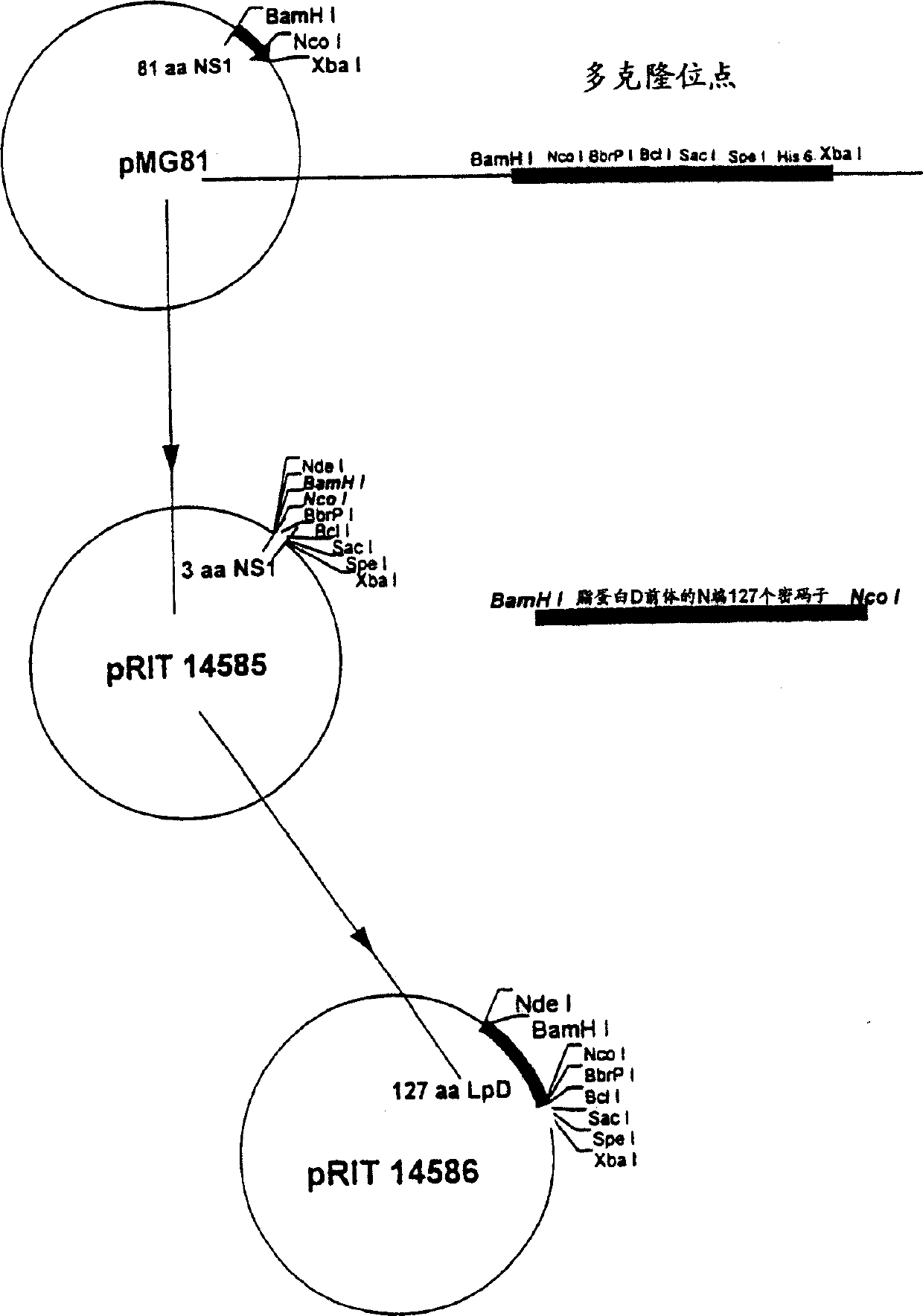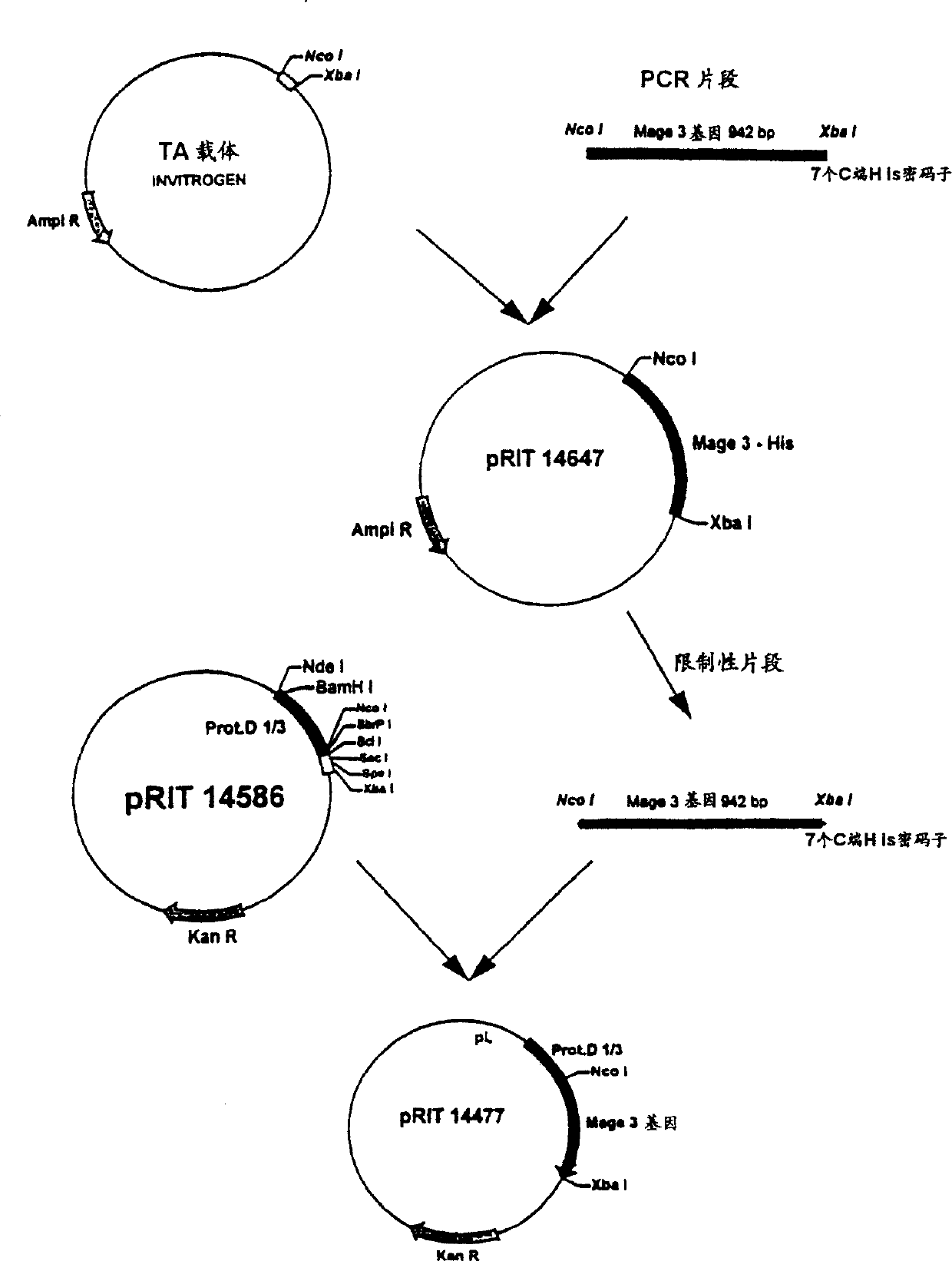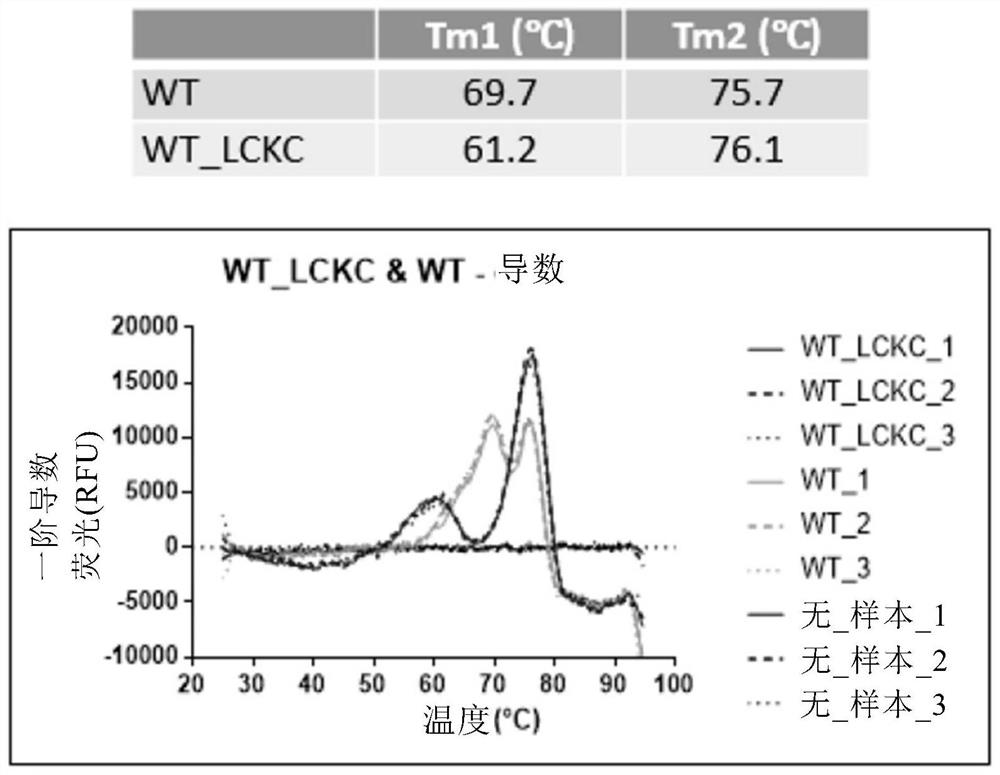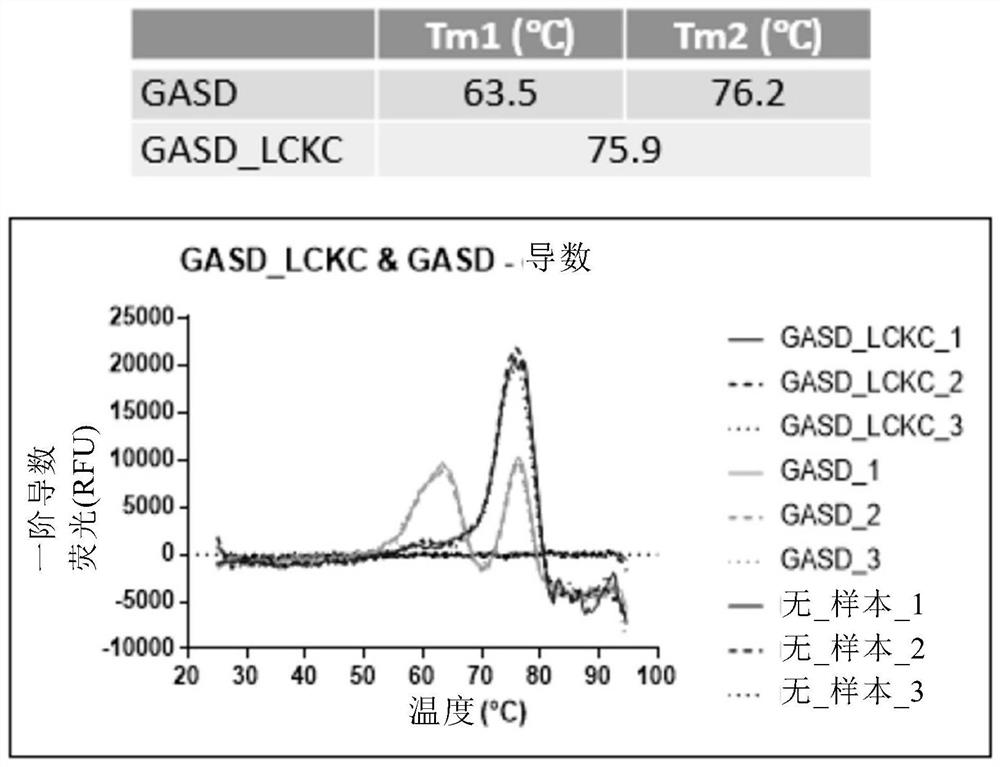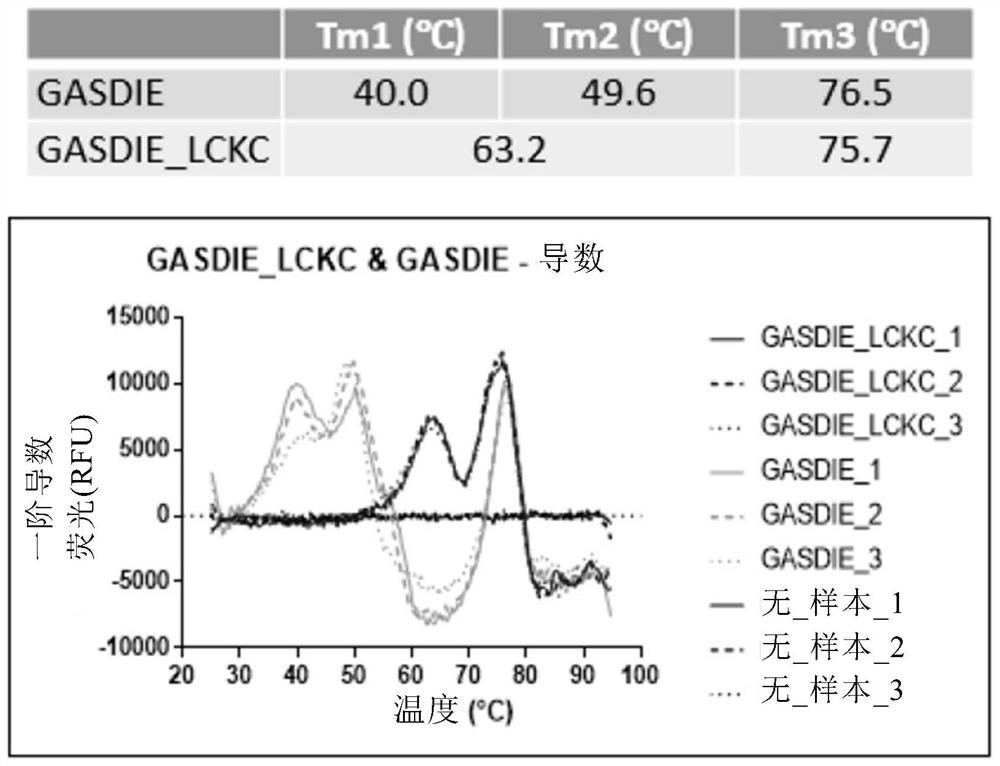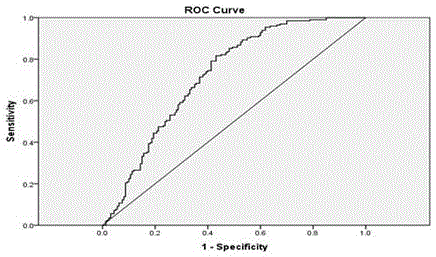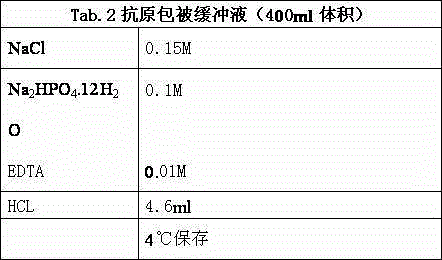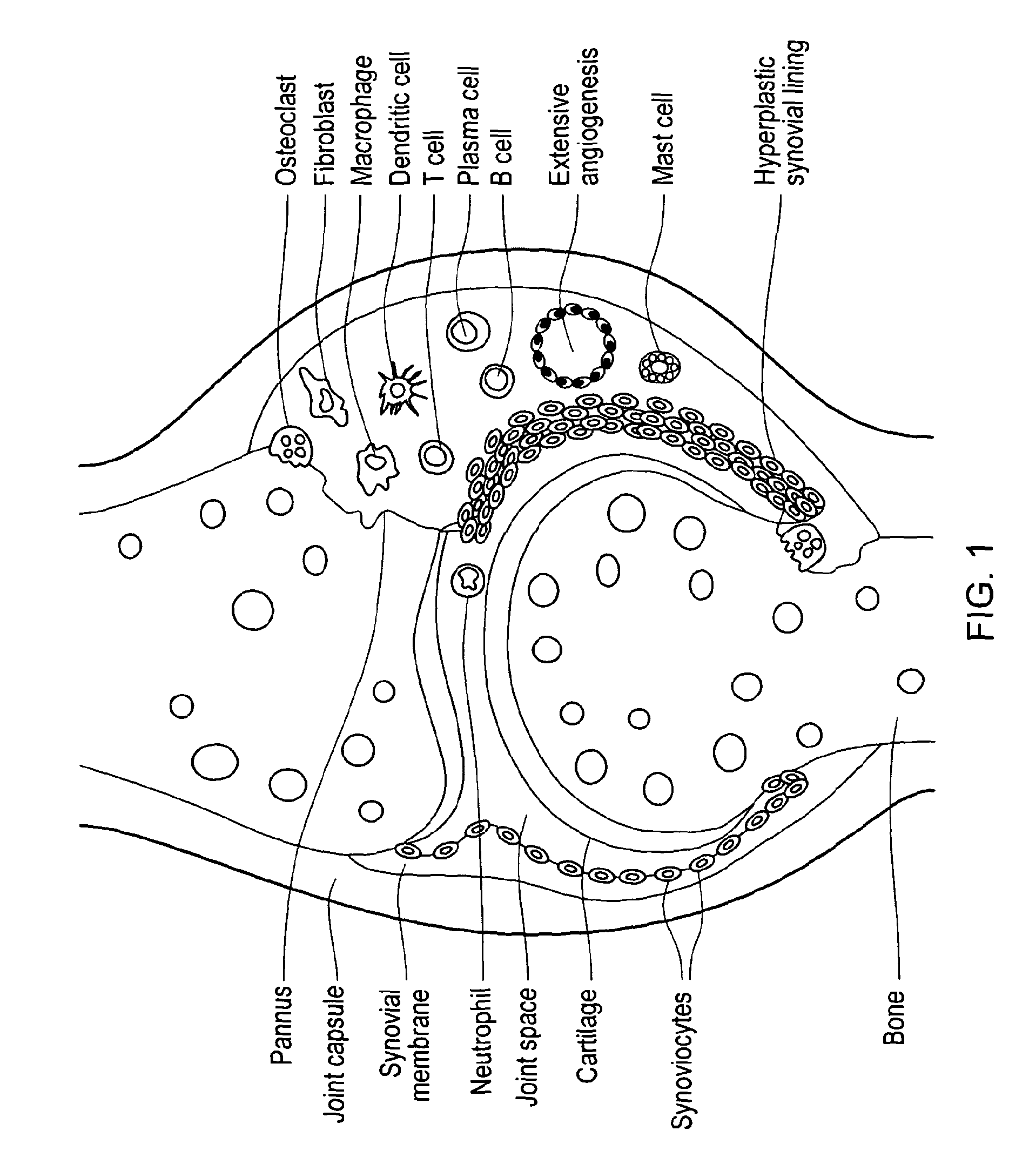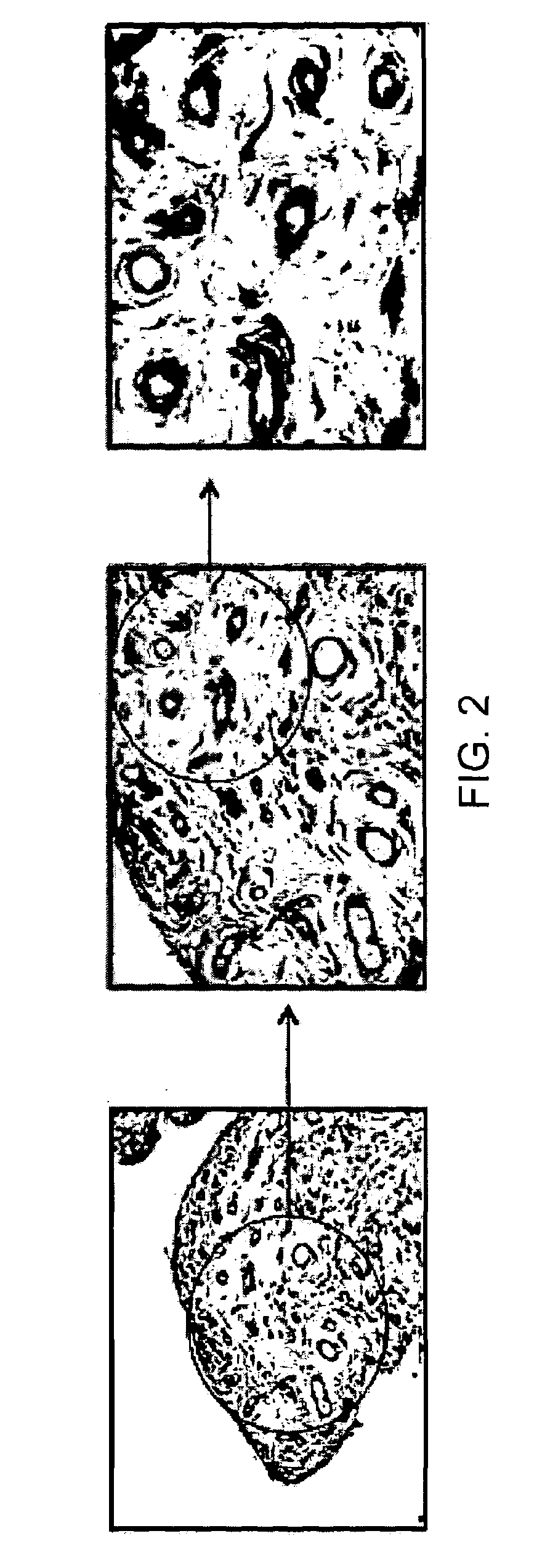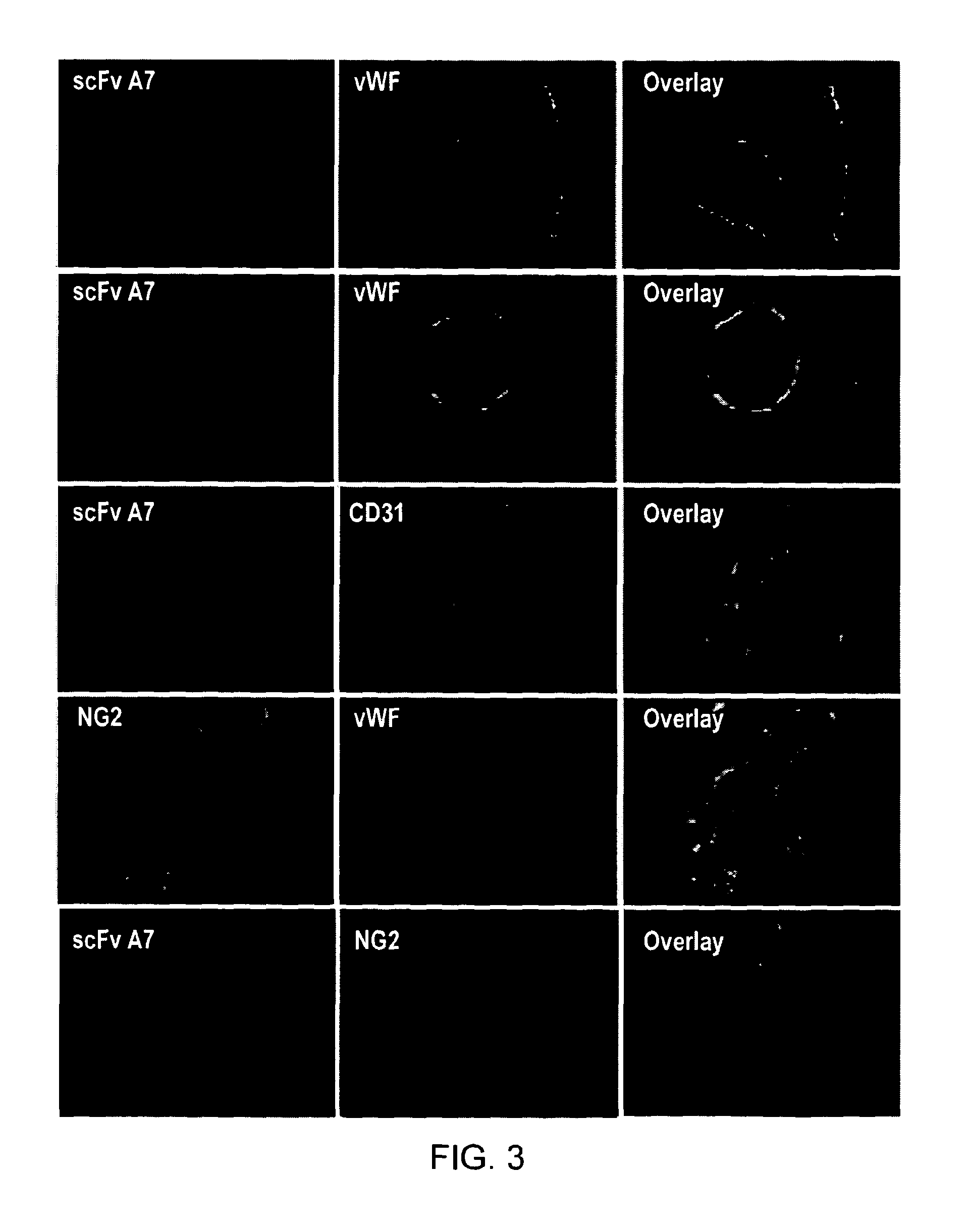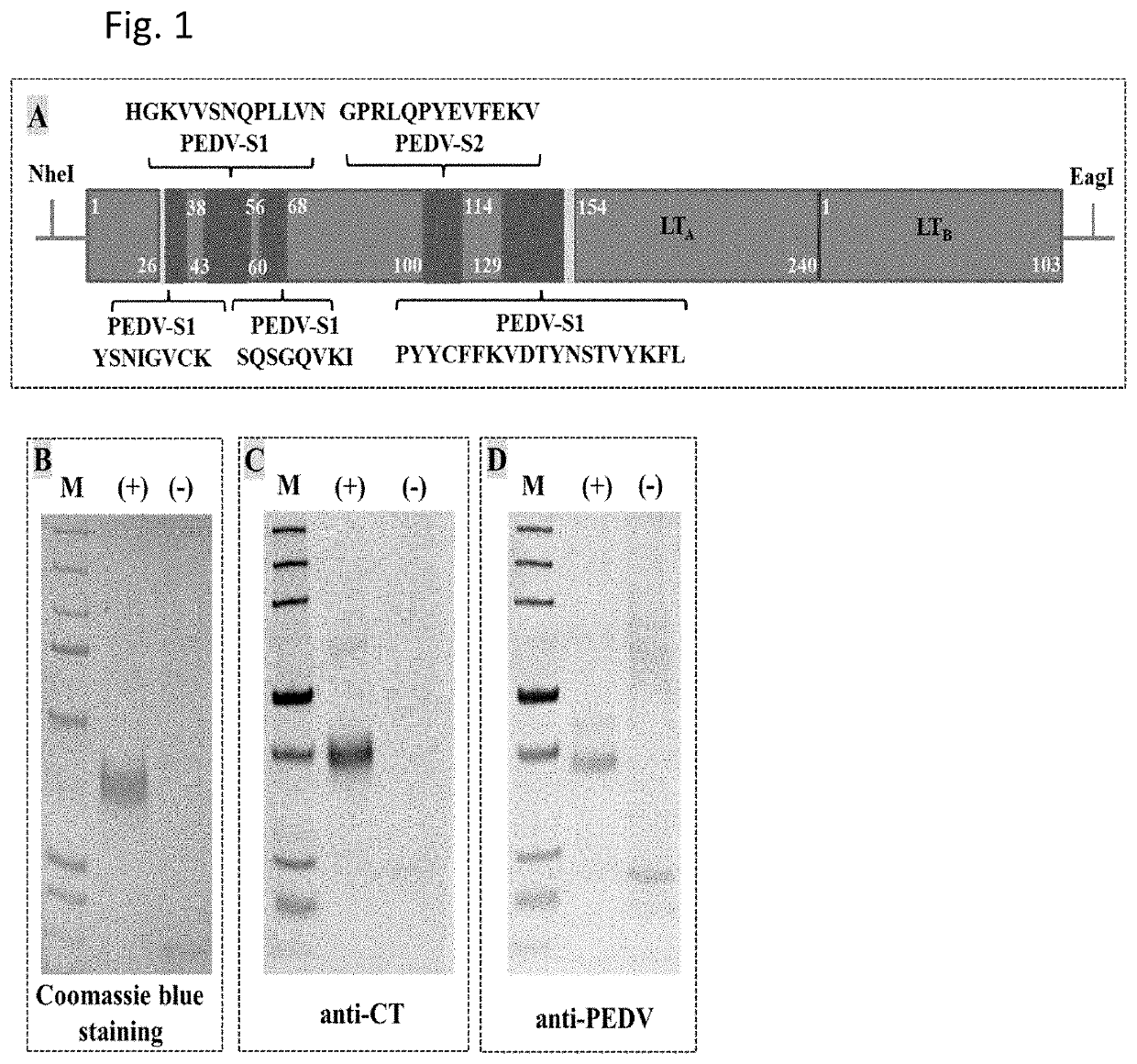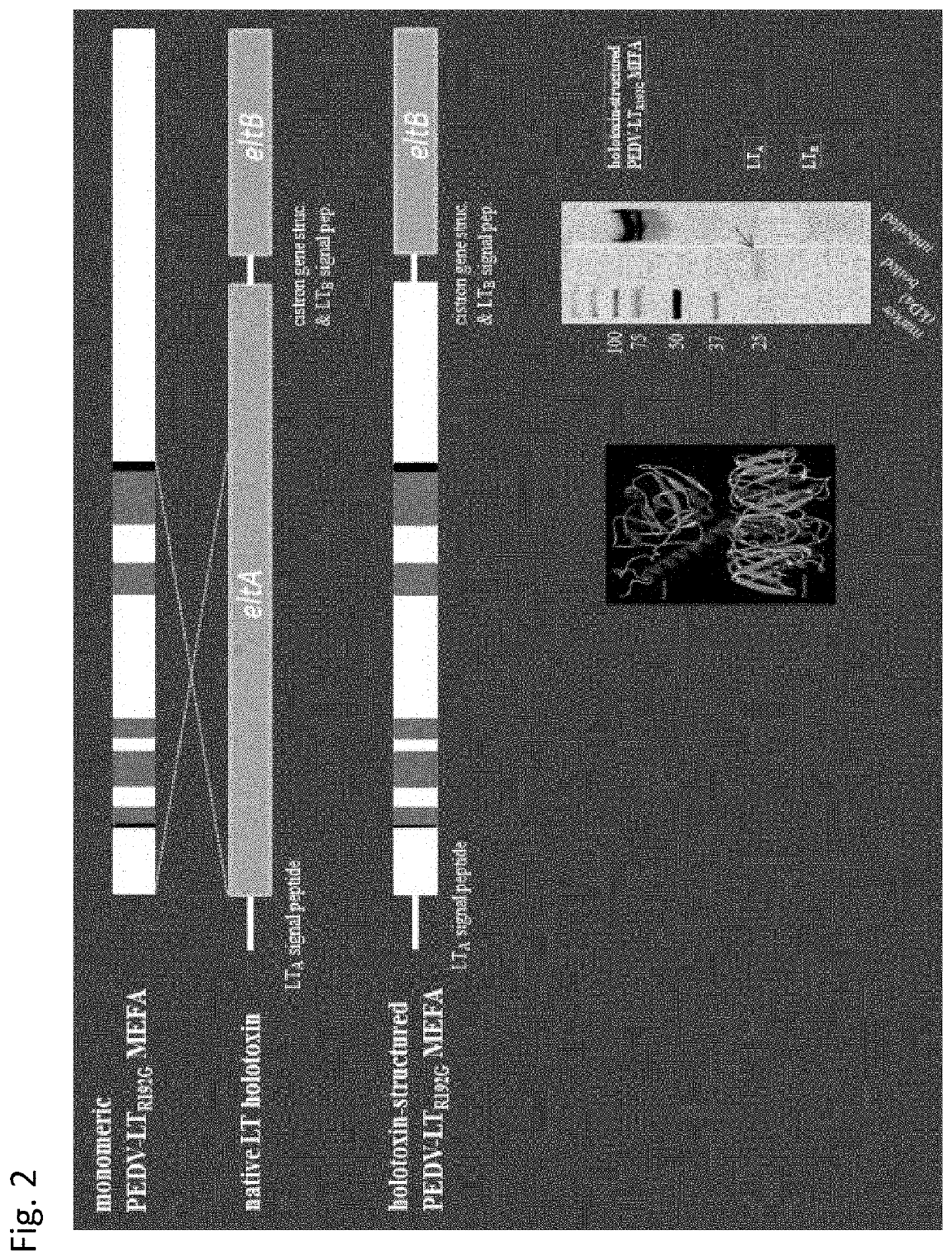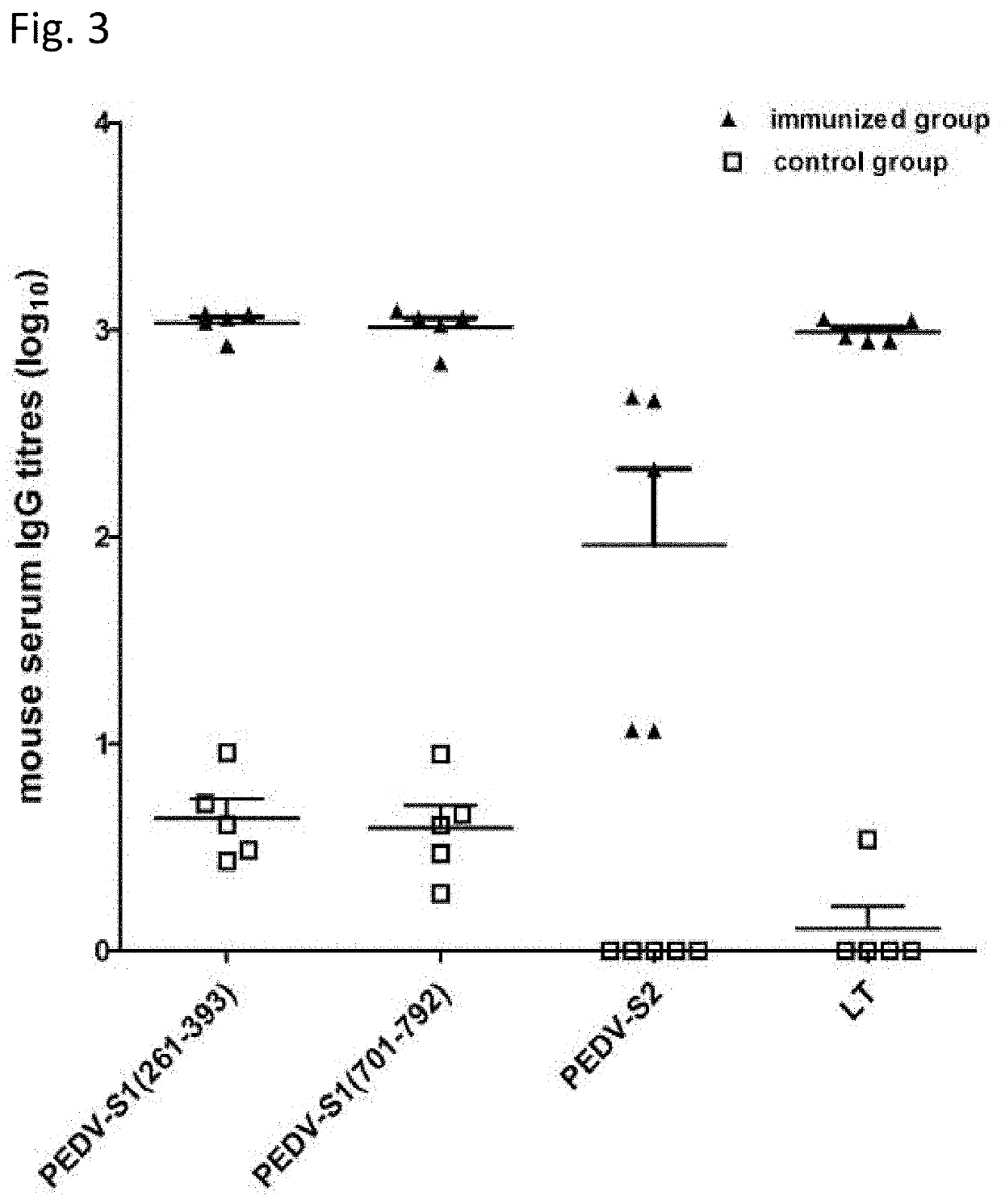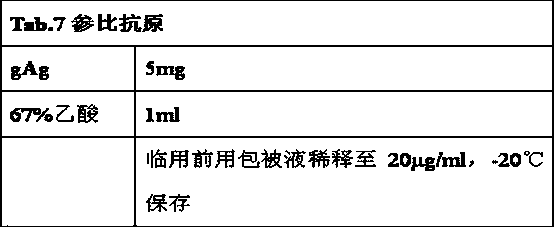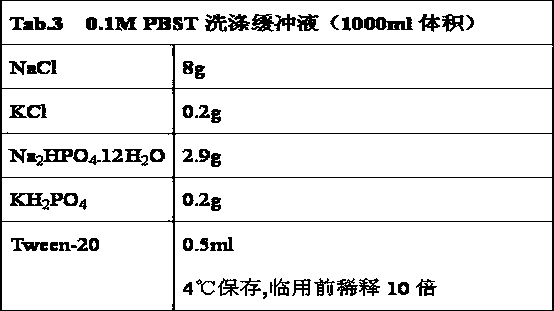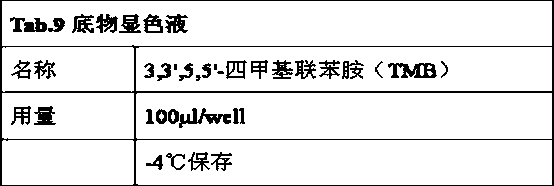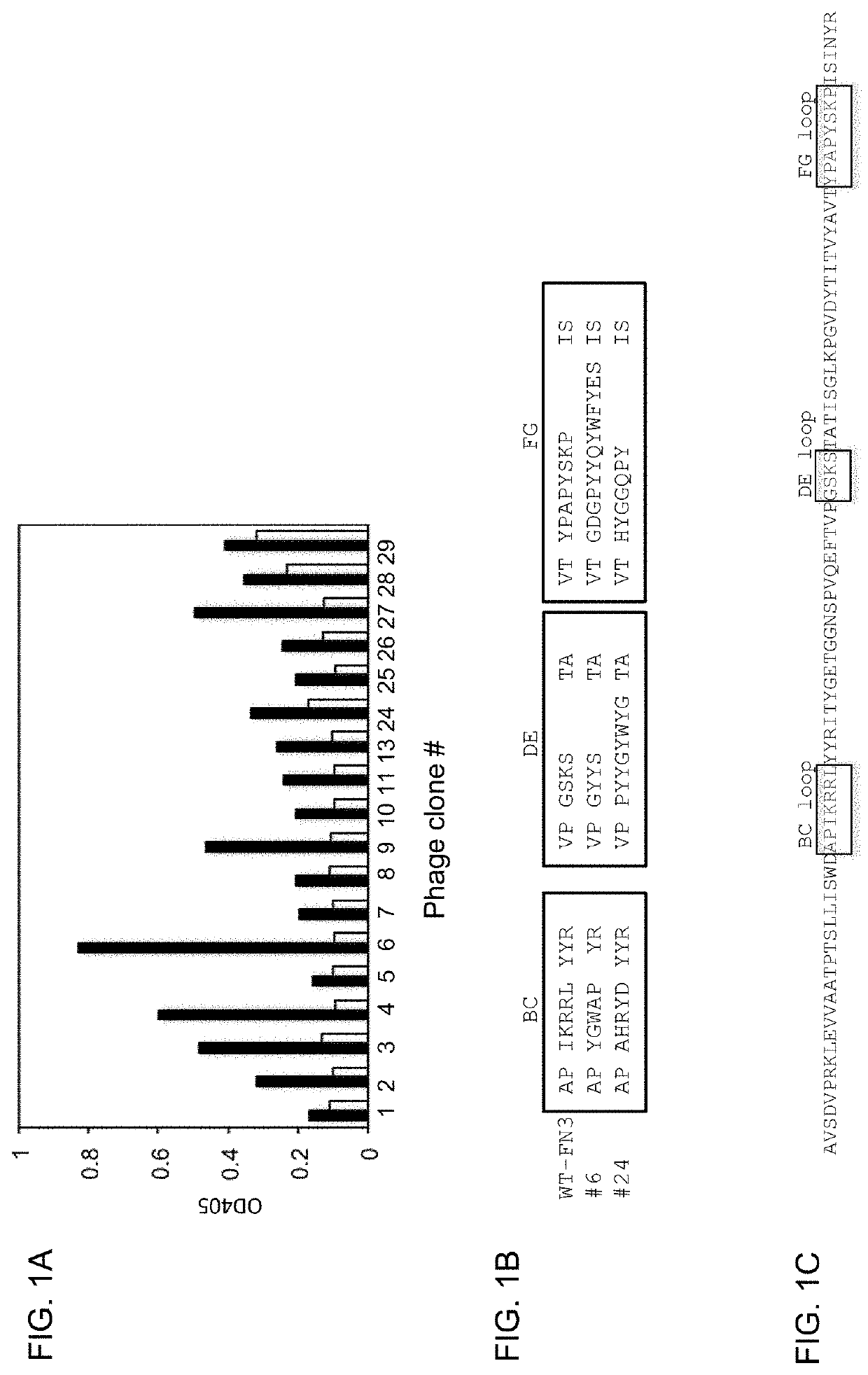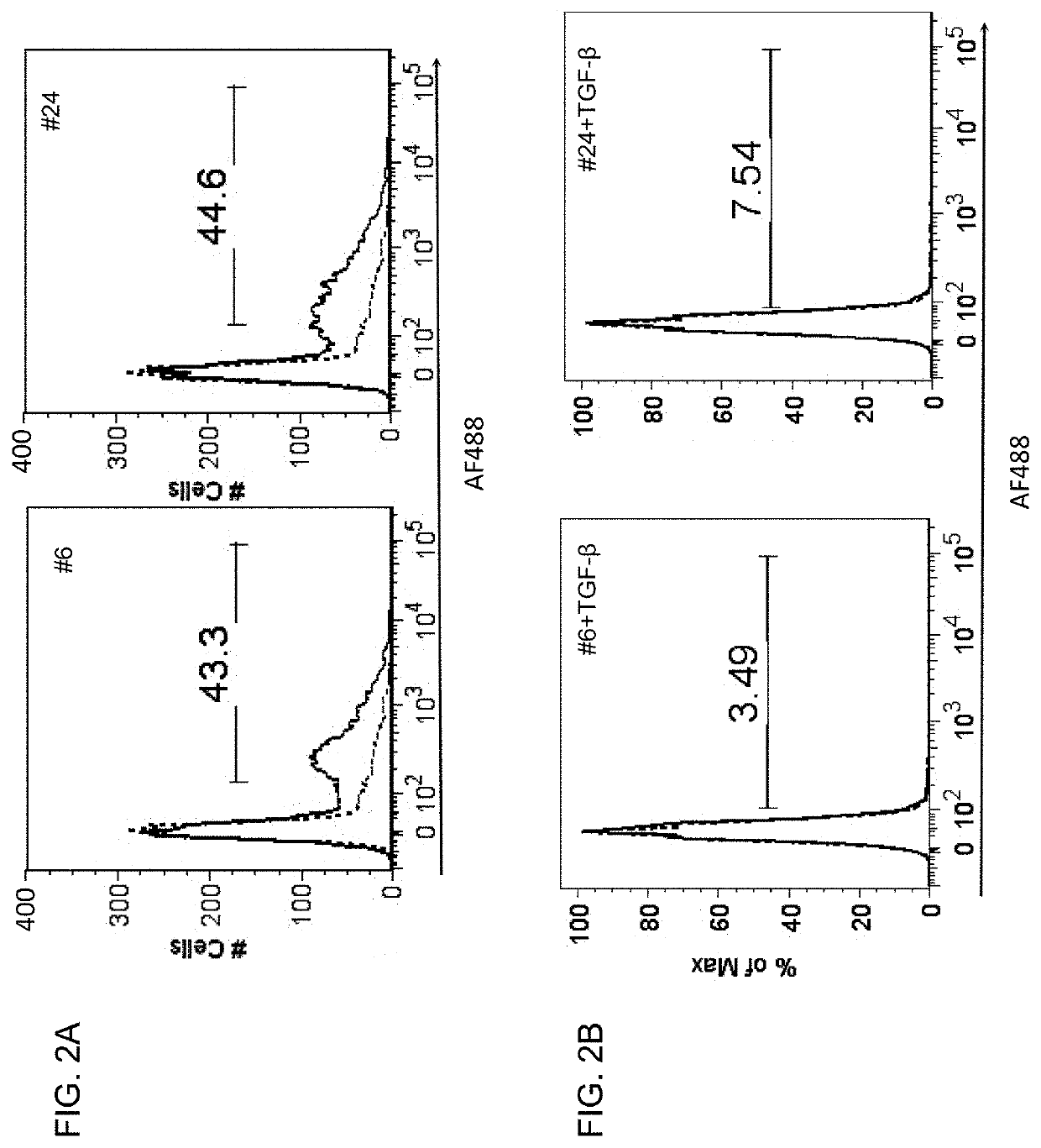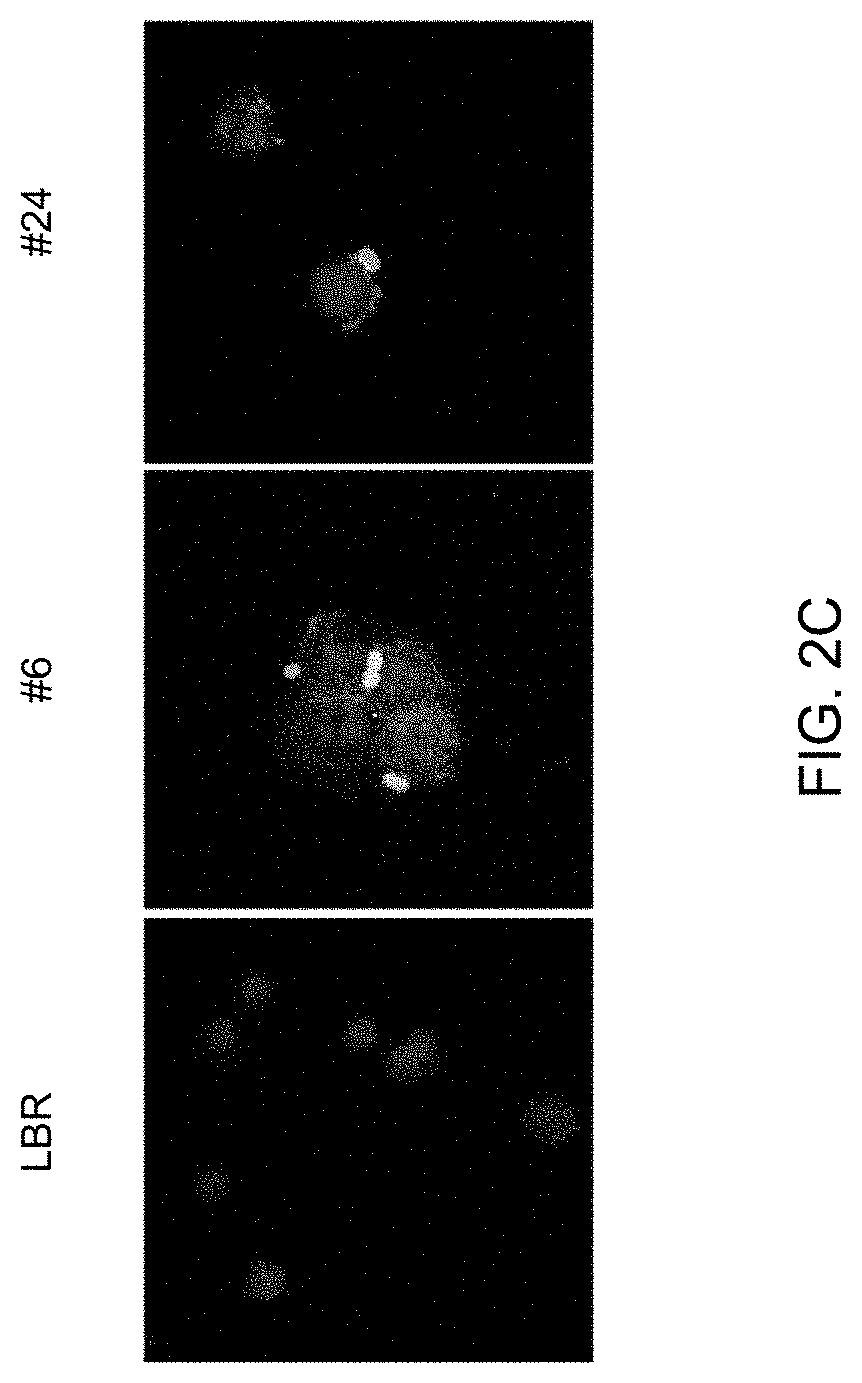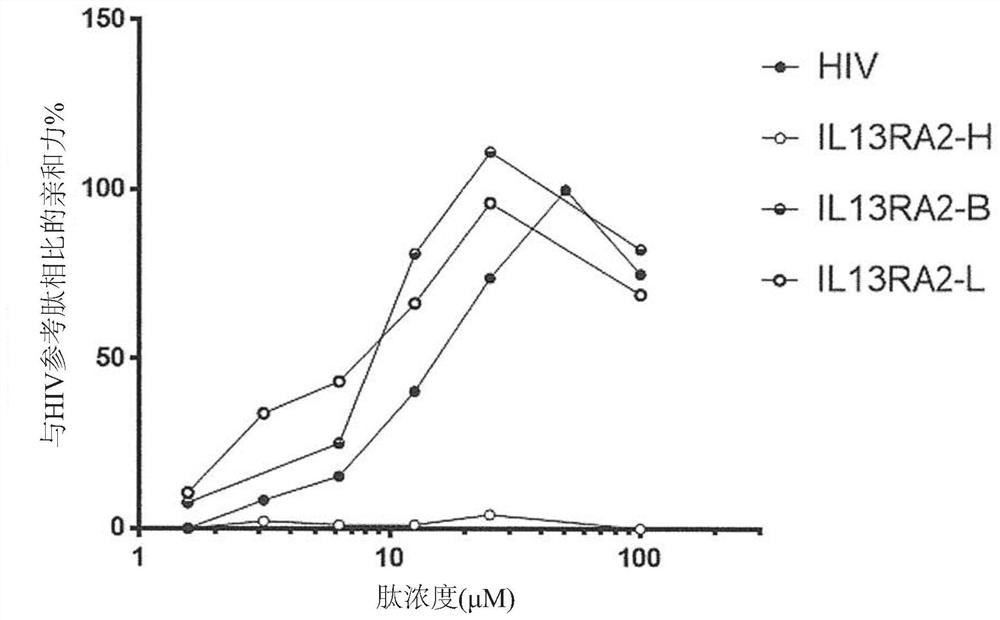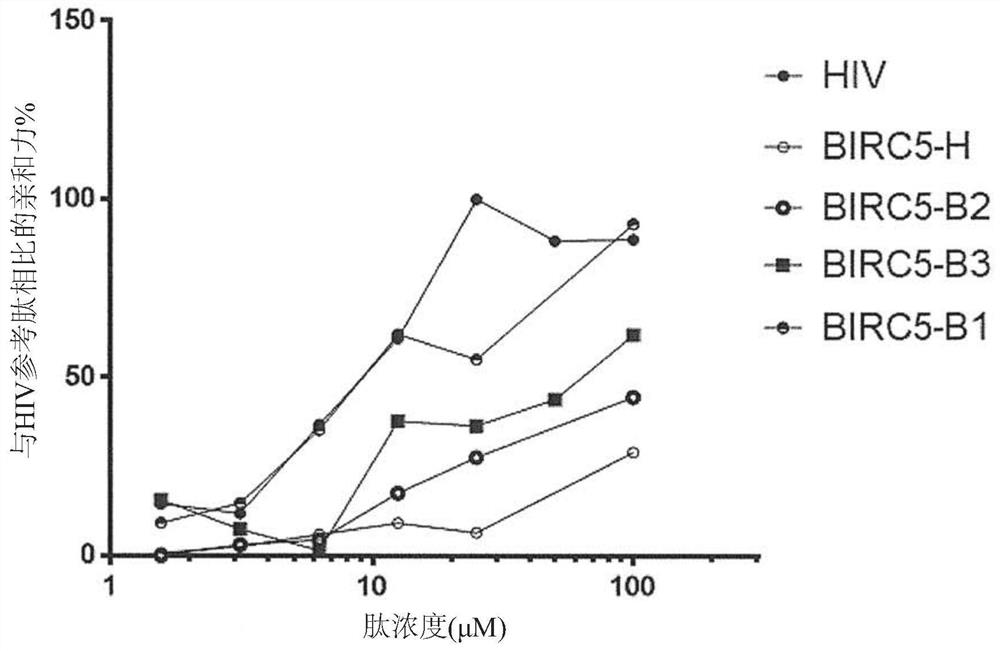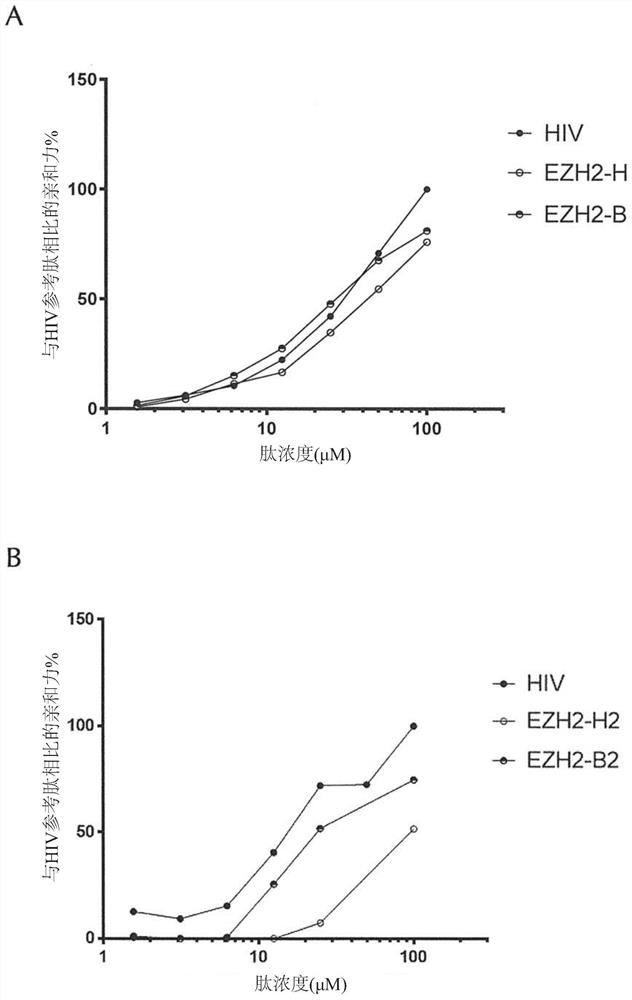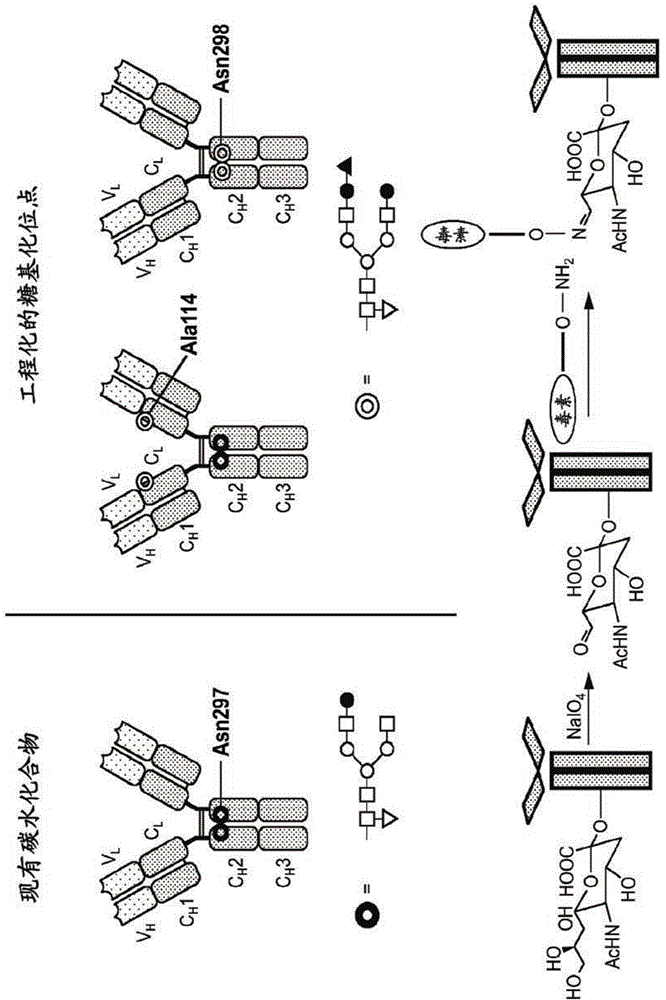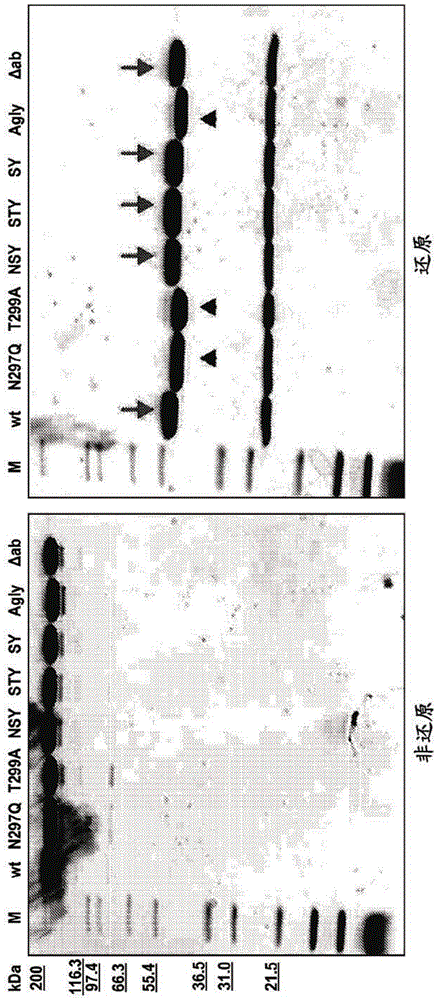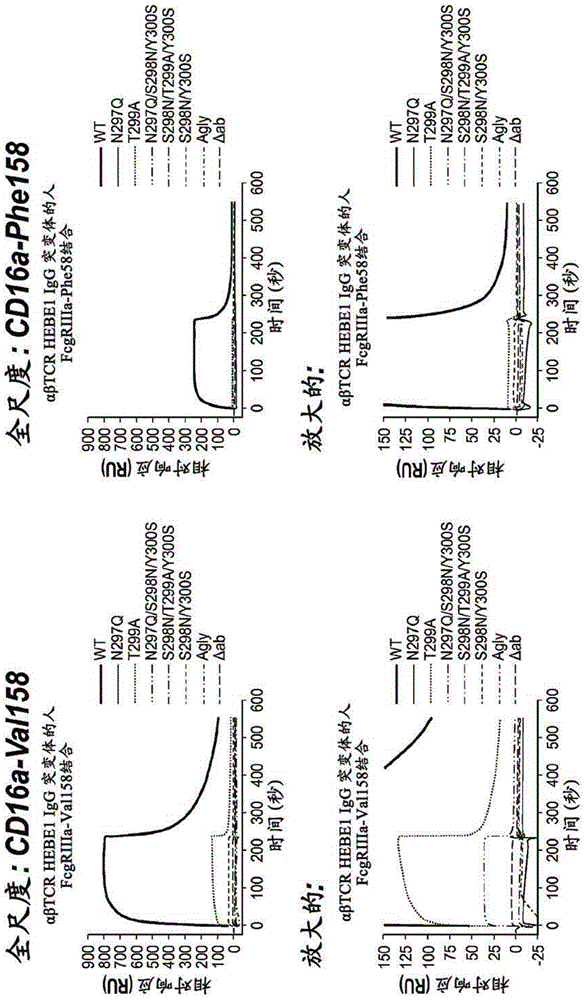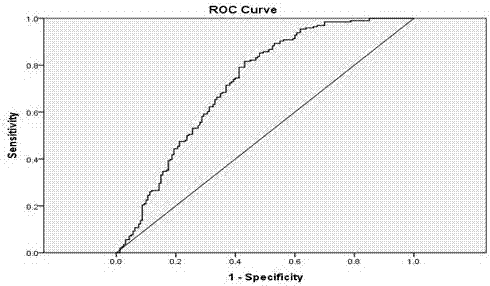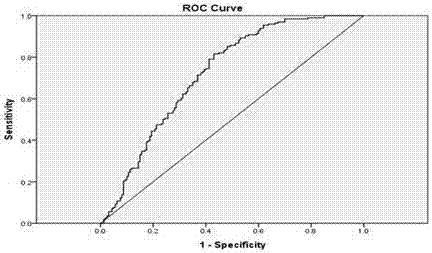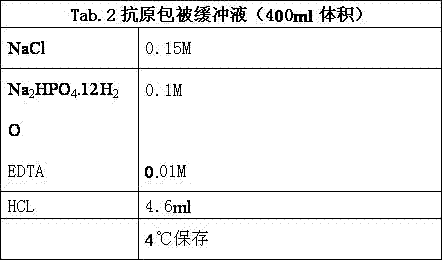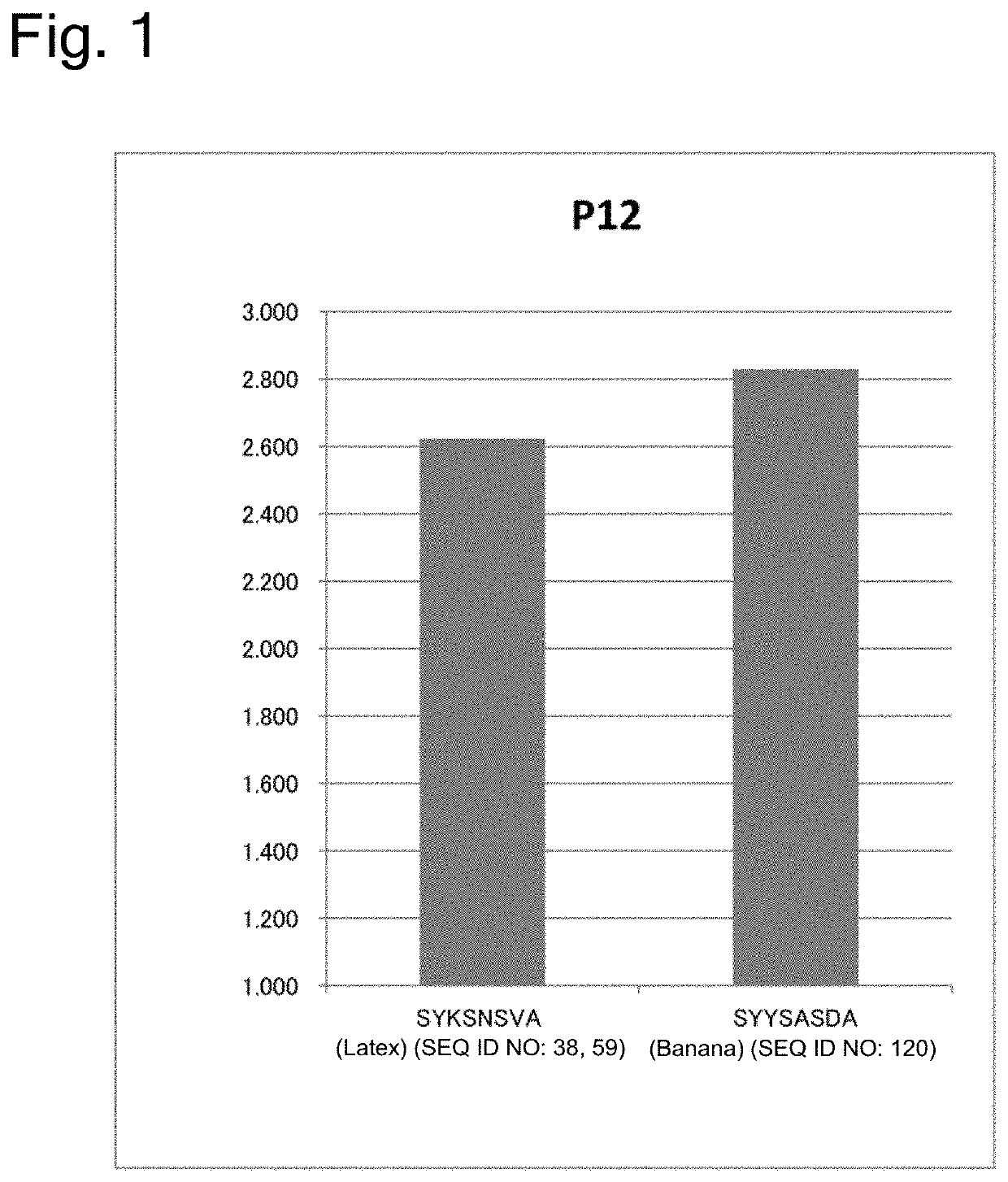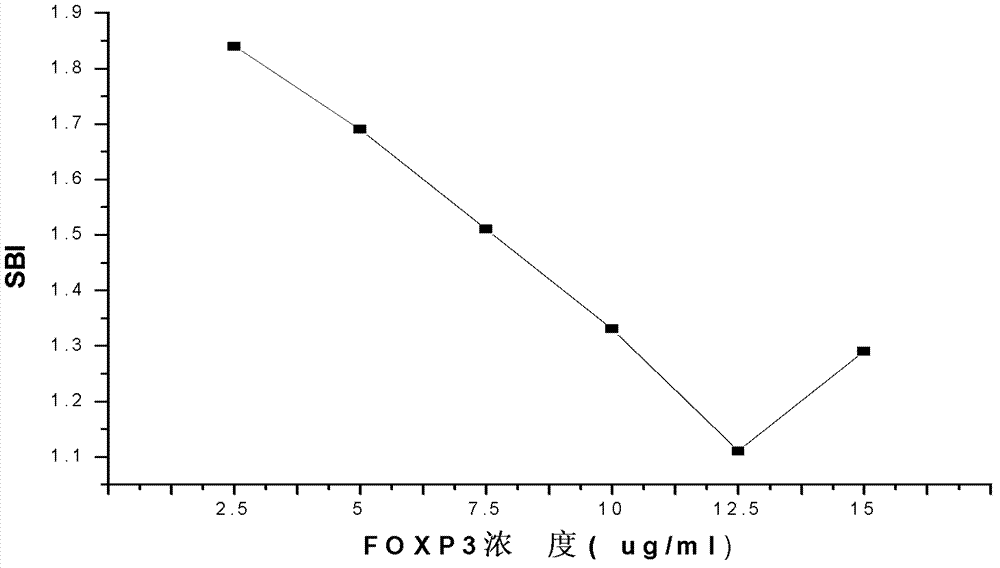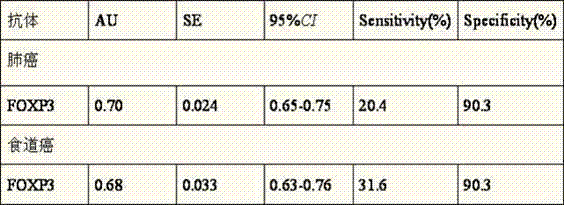Patents
Literature
30 results about "Ce antigen" patented technology
Efficacy Topic
Property
Owner
Technical Advancement
Application Domain
Technology Topic
Technology Field Word
Patent Country/Region
Patent Type
Patent Status
Application Year
Inventor
Carcinoembryonic antigen (CEA) an oncofetal glycoprotein antigen originally thought to be specific for adenocarcinoma of the colon, but now known to be found in many other cancers and some nonmalignant conditions. Its primary use is in monitoring the response of patients to cancer treatment.
Anti-mesothelin antibodies and uses thereof
ActiveUS9023351B2BacteriaImmunoglobulins against cell receptors/antigens/surface-determinantsDiseaseAnti-Mesothelin Antibody
The present invention provides recombinant antigen-binding regions and antibodies and functional fragments containing such antigen-binding regions that are specific for the membrane-anchored, 4O.kDa mesothelin polypeptide, which is overexpressed in several tumors, such as pancreatic and ovarian tumors, mesothelioma and lung cancer cells. These antibodies, accordingly, can be used to treat these and other disorders and conditions. Antibodies of the invention also can be used in the diagnostics field, as well as for further investigating the role of mesothelin in the progression of disorders associated with cancer. The invention also provides nucleic acid sequences encoding the foregoing antibodies, vectors containing the same, pharmaceutical compositions and kits with instructions for use.
Owner:BAYER INTELLECTUAL PROPERTY GMBH
Tumor marker CD25 autoantibody and application thereof
InactiveCN102585000APredictive primaryIndicative of secondary tumorsImmunoglobulins against cell receptors/antigens/surface-determinantsBiological testingStage tumorAutoantibody production
The invention discloses a tumor marker CD25 autoantibody and application of the tumor marker CD25 autoantibody, belonging to the technical field of immunology. The invention provides an amino acid sequence of antigen of immune response regulation gene CD25. The CD25 polypeptide antigen is used for detecting corresponding specific autoantibody in blood of lung cancer and esophageal cancer patients; and the autoantibody can be used as a tumor marker to evaluate risk level of occurrence of lung cancer and esophageal cancer. The antigen polypeptide and the antibody can be used for preparing early-stage tumor diagnostic reagent and developing target drugs for treating tumor.
Owner:尉军
Amino acid sequence for detecting tumor marker P16 antigenic epitope and application of amino acid sequence
The invention discloses an amino acid sequence for detecting a tumor marker P16 antigenic epitope and application of the amino acid sequence, and belongs to the technical field of immunology. The invention provides an antigenic amino acid sequence of a tumor anti-cancer gene P16. The P16 polypeptide antigen is used for detecting corresponding specific antigenic epitope in the blood of a patient with lung cancer and esophagus cancer; the antigenic epitope can be used as a tumor marker for estimating the degree of risk for occurring the lung cancer and the esophagus cancer. And the antigenic polypeptide and an antibody thereof can be used for preparing tumor early-diagnosis reagent and developing a targeted drug for treating the tumors.
Owner:尉军
Method and composition for regulating the activity of regulatory t cells
InactiveUS20060121029A1High activitySuppression of rejection and graft-versus-host reactionsPeptide/protein ingredientsGenetic material ingredientsGraft versus host reactionsAntigen
The present invention provides a composition and method of regulating the activity of regulatory T cells. The present invention relates to a composition containing an antigen recognized by CD4+CD25+ regulatory T cells or an expression vector encoding such an antigen and a method of controlling an immune response from a mammal by administrating the composition to the mammal. Furthermore, the present invention provides effective means for suppressing a rejection reaction and a graft-versus-host reaction in transplantation and for prevention and treatment of an autoimmune disease or an allergic disease. Furthermore, an immunosuppression condition can be removed by the administration of Interferon-γ or a combination of Interleukin 12 and Interleukin 18. In other words, those cytokine actions and the sensitization with an SEREX antigen are suitably combined to artificially manipulate regulatory T cells, allowing the cells to be applied to an autoimmune disease, reactions accompanied with organ transplantation, allergic reaction, control of tumor immunity, and the like.
Owner:IMMUNOFRONTIER
Anti-c4.4a antibodies and uses thereof
InactiveUS20120321619A1Good curative effectBacteriaPeptide/protein ingredientsDiseaseProstate cancer
The present invention provides recombinant antigen-binding regions and antibodies and functional fragments containing such antigen-binding regions that are specific for the membrane-anchored, 29 kDa C4.4a polypeptide, which is over expressed in several tumors, e.g. lung, colorectal, pancreas, prostate, renal and breast cancer. These antibodies, accordingly, can be used to treat these and other disorders and conditions. Antibodies of the invention also can be used in the diagnostics field, as well as for further investigating the role of C4.4a in the progression of disorders associated with cancer. The invention also provides nucleic acid sequences encoding the foregoing antibodies, vectors containing the same, pharmaceutical compositions and kits with instructions for use.
Owner:BAYER INTELLECTUAL PROPERTY GMBH
Amino acid sequence for detecting tumor marker P16 antigenic epitope and application of amino acid sequence
InactiveCN103293308BImmunoglobulins against cell receptors/antigens/surface-determinantsPeptide antigenOncology
The invention discloses an amino acid sequence for detecting a tumor marker P16 antigenic epitope and application of the amino acid sequence, and belongs to the technical field of immunology. The invention provides an antigenic amino acid sequence of a tumor anti-cancer gene P16. The P16 polypeptide antigen is used for detecting corresponding specific antigenic epitope in the blood of a patient with lung cancer and esophagus cancer; the antigenic epitope can be used as a tumor marker for estimating the degree of risk for occurring the lung cancer and the esophagus cancer. And the antigenic polypeptide and an antibody thereof can be used for preparing tumor early-diagnosis reagent and developing a targeted drug for treating the tumors.
Owner:尉军
Use of allogeneic cell lines to load antigen presenting cells to elicit or eliminate immune responses
InactiveUS7988963B1Reduce transplant rejectionLower immune responseBiocideMammal material medical ingredientsAllogeneic cellDendritic cell
Novel antigen-presenting cells, including but not limited to dendritic cells, that are loaded with antigens from dead or dying cells including allogenic cell lines, and the methods for making such antigen-presenting cells are described. These loaded antigen-presenting cells induce therapeutic immune responses in humans. Such loaded antigen-presenting cells are useful in the management of cancer. Antigen-loaded dendritic cells prepared as described here can prime naïve T cells to differentiate into effector cells able to recognize multiple and / or shared tumor antigens that are expressed either on the tumor cells that are used to load the dendritic cells and / or on other tumor cells. The cytotoxic T cells generated by exposure to antigen-loaded dendritic cells prepared as described here can be used in adoptive therapy. This induction of responses against multiple antigens shared between different cells, for instance tumor cells, as described here is important as it leads to broad immune responses.
Owner:BAYLOR RES INST
Antibody specifically binding synovial microvasculature of arthritis patients
The present invention provides an antigen binding polypeptide which specifically targets the synovial microvasculature of arthritis patients and comprises one or more complementarity determining regions (CDRs) selected from the group consisting of SEQ ID NOs 1 to 4. The present invention also relates to the use of such antigen binding polypeptides and conjugates thereof for use in the diagnosis and treatment of arthritis.
Owner:QUEEN MARY UNIV OF LONDON
Anti-tweakr antibodies and uses thereof
InactiveUS20160237160A1Good curative effectImmunoglobulins against cell receptors/antigens/surface-determinantsAntibody ingredientsAntigen bindingNucleic acid sequencing
The present invention provides recombinant antigen-binding regions and antibodies and functional fragments containing such antigen-binding regions that are specific for the TWEAKR (TNFRSF12A, FN14). The antibodies, accordingly, can be used to treat tumors and other disorders and conditions associated with expression of the TWEAKR. The invention also provides nucleic acid sequences encoding the foregoing antibodies, vectors containing the same, pharmaceutical compositions and kits with instructions for us.
Owner:BAYER PHARMA AG
Epitope amino acid sequence for detecting liver cancer marker IMP1 and application thereof
InactiveCN105111297AGuide early diagnosisGuiding Prognostic PredictionTumor rejection antigen precursorsTumor specific antigensAutoantibody productionImmunologic function
The epitope amino acid sequence for detecting liver cancer marker IMP1 and an application thereof belong to the technical field of immunology. The invention provides an epitope amino acid sequence of liver cancer related gene IMP1. An IMP1 polypeptide antigen is applied to detect corresponding specific autoantibodies in the blood of a patient with liver cancer, and the autoantibody can be used as a liver cancer marker to assess risks of liver cancer and prognostic effect. The antigenic polypeptide and antibody thereof can be used to prepare reagents for early diagnosis of liver cancer and prognosis and to develop a targeted drug for liver cancer treatment.
Owner:JILIN UNIV
Anti-CEACAM6 antibodies and uses thereof
ActiveUS10584167B2Relieve CEACAM6-mediated immunosuppressionIncreased IFN-gammaImmunoglobulins against cell receptors/antigens/surface-determinantsAntibody ingredientsDiseaseAntiendomysial antibodies
The present invention provides recombinant antigen-binding regions and antibodies and functional fragments containing such antigen-binding regions that are specific for human and Macaca fascicularis CEACAM6 (Carcinoembryonic antigen-related cell adhesion molecule 6, CD66c, Non-specific crossreacting antigen, NCA, NCA-50 / 90), and which do not significantly cross-react with the closely related human CEACAM1, human CEACAM3, and human CEACAM5. The invention further provides methods to generate this kind of antibodies. The antibodies, accordingly, can be used to treat cancer and other disorders and conditions associated with expression of the CEACAM6. The invention also provides nucleic acid sequences encoding the foregoing antibodies, vectors containing the same, pharmaceutical compositions and kits with instructions for use.
Owner:BAYER PHARMA AG
Bi-specific antigen-binding polypeptides
Owner:X BODY
Anti-mesothelin immunoconjugates and uses therefor
ActiveUS20170327589A1Good curative effectImmunoglobulins against cell receptors/antigens/surface-determinantsAntibody ingredientsAntiendomysial antibodiesAntibody fragments
The present invention provides immunoconjugates composed of antibodies, e.g., monoclonal antibodies, or antibody fragments that bind to mesothelin, that are conjugated to cytotoxic agents, e.g., maytansine, or derivatives thereof, and / or co-administered or formulated with one or more additional anti-cancer agents. The immunoconjugates of the invention can be used in the methods of the invention to treat and / or diagnose and / or monitor cancers, solid tumors, recombinant antigen-binding regions and antibodies and functional fragments containing such antigen-binding regions that are specific for the membrane-anchored, 40 kDa mesothelin polypeptide, which which is overexpressed in several tumors, such as pancreatic and ovarian tumors, mesothelioma and lung cancer cells.
Owner:BAYER INTELLECTUAL PROPERTY GMBH
Antigen epitope amino acid sequence for detecting esophageal cancer marker Survivin and application of amino acid sequence
PendingCN113429470AEarly Diagnosis GuidanceIncreased sensitivityBiological material analysisBiological testingAntigen epitopePeptide antigen
The invention relates to an antigen epitope amino acid sequence for detecting an esophageal cancer marker Survivin and application of the antigen epitope amino acid sequence, and belongs to the technical field of immunology. The invention provides the antigen amino acid sequence of a tumor cancer suppressor gene Survivin, the Survivin polypeptide antigen is applied for detecting a corresponding specific antigen epitope in the blood of an esophageal cancer patient, the antigen epitope can be used as a tumor marker for evaluating the risk degree of esophageal cancer, the antigen polypeptide and an antibody of the antigen polypeptide can be used for preparing an esophageal cancer early diagnosis reagent, and reliable data is provided for research of new tumor drugs.
Owner:JILIN UNIV
Anti-mesothelin immunoconjugates and uses therefor
ActiveUS10647779B2Good curative effectImmunoglobulins against cell receptors/antigens/surface-determinantsAntibody ingredientsAntiendomysial antibodiesAntibody fragments
The present invention provides immunoconjugates composed of antibodies, e.g., monoclonal antibodies, or antibody fragments that bind to mesothelin, that are conjugated to cytotoxic agents, e.g., maytansine, or derivatives thereof, and / or co-administered or formulated with one or more additional anti-cancer agents. The immunoconjugates of the invention can be used in the methods of the invention to treat and / or diagnose and / or monitor cancers, solid tumors, recombinant antigen-binding regions and antibodies and functional fragments containing such antigen-binding regions that are specific for the membrane-anchored, 40 kDa mesothelin polypeptide, which which is overexpressed in several tumors, such as pancreatic and ovarian tumors, mesothelioma and lung cancer cells.
Owner:BAYER INTELLECTUAL PROPERTY GMBH
A kind of porcine viral diarrhea triple antigen-antibody complex and preparation method thereof
ActiveCN106267195BImprove performanceImprove securitySsRNA viruses positive-senseViral antigen ingredientsAntigenPorcine rotavirus
The invention provides a triple antigen and antibody complex for preventing and controlling porcine viral diarrhea and a preparation method of the triple antigen and antibody complex. The triple antigen and antibody complex comprises an antigen and an antibody, wherein the antigen is a triple virus liquid obtained by mixing porcine transmissible gastroenteritis viruses, porcine epidemic diarrhea viruses and porcine rotavirus, and the antibody is a triple egg yolk antibody prepared on the basis of the antigen. The triple antigen and antibody complex for preventing and controlling porcine viral diarrhea is convenient and quick to use and capable of safely and effectively preventing and controlling the porcine viral diarrhea. The triple antigen and antibody complex can effectively reduce the body immunological stress response, increases the protection production speed, rapidly increases the body antibody titer and is prevented from the virus diffusion risk in production and use processes.
Owner:TIANJIN ZHONGSHENG TIAOZHAN BIOTECH
Tumor-associated antigen derivatives from MAGE family, and nucleic acid sequence encoding them
The present invention relates to novel proteins and to their production, from the MAGE family. In particular, to a MAGE protein fused to an immunological fusion partner, such as Lipoprotein D. Such antigens may be formulated to provide vaccines for the treatment of a range of tumours. Novel methods for purifying MAGE proteins are also provided.
Owner:GLAXOSMITHKLINE BIOLOGICALS SA
Engineered fc
Antigen-binding molecules comprising an Fc region comprising a polypeptide having: (i) C at the position corresponding to position 242, and C at the position corresponding to position 334, and (ii) one or more of: A at the position corresponding to position 236, D at the position corresponding to position 239, E at the position corresponding to position 332, L at the position corresponding to position 330, K at the position corresponding to position 345, and G at the position corresponding to position 430 are disclosed. Also discloses are constituent polypeptides of such Fc regions, nucleic acids encoding such antigen- binding molecules and polypeptides, compositions comprising such antigen-binding molecules, polypeptides and nucleic acids, and methods using the same.
Owner:HUMMINGBIRD BIOSCI HLDG PTE LTD
Epitode amino acid sequence of TFG-beta1 (transforming growth factor beta-1) as breast cancer detecting marker and application of epitode amino acid sequence
The invention discloses an epitode amino acid sequence of TFG-beta1 (transforming growth factor beta-1) as a breast cancer detecting marker and application of the epitode amino acid sequence, belongs to the technical field of immunology, and provides the antigen amino acid sequence of a breast cancer-related gene TFG-beta1. The TFG-beta1 polypeptide antigen can be applied to detection of the corresponding specific autoantibody in the blood of a breast cancer patient, the autoantibody can be used as the breast cancer marker for evaluating the degree of risk of breast cancer occurrence, and the antigenic polypeptide and the antibody thereof can be used for preparing a reagent for early diagnosis of breast cancer and developing a target medicine for treating breast cancer.
Owner:BEIHUA UNIV
Antibody specifically binding synovial microvasculature of arthritis patients
Owner:QUEEN MARY UNIV OF LONDON
Multiepitope fusion antigens for vaccination and methods of making and using such antigens
PendingUS20210162039A1Promotes an increase in inductionSsRNA viruses positive-senseViral antigen ingredientsAntigen epitopeVaccination
The present disclosure provides vaccines or immunogenic compositions against clinical signs, symptoms, and losses attributable to or caused by infection with PEDV and / or ETEC. Antigenic epitopes from PEDV and ETEC are used to construct an immunogenic composition, preferably in the form of a multi-epitope fusion antigen or as a live strain through E. coli.
Owner:KANSAS STATE UNIV RES FOUND
A detection of cervical cancer marker-foxp3 autoantibody epitope amino acid sequence and application
ActiveCN104892746BTumor rejection antigen precursorsTumor specific antigensMalignancyAutoantibody production
The invention provides an epitope polypeptide for detecting a cervical cancer tumor marker-FOXP3 autoantibody and an application thereof, belongs to the technical field of immunology, and provides an antigen amino acid sequence of an immune response regulating gene FOXP3 autoantibody. The corresponding specific autoantibody in plasma of cervical cancer benign and malignancy patients is detected by applying an FOXP3 epitope polypeptide antigen, and the autoantibody can be used as a cervical cancer tumor marker for evaluating the risk factor of cervical cancer occurrence. The antigen epitope polypeptide and the antibody thereof can be used for preparation of cervical cancer early-diagnosis reagents and development of targeted drugs for treating cervical cancer.
Owner:JILIN UNIV
Tumor marker CD25 autoantibody and application thereof
InactiveCN102585000BImmunoglobulins against cell receptors/antigens/surface-determinantsBiological testingStage tumorAutoantibody production
The invention discloses a tumor marker CD25 autoantibody and application of the tumor marker CD25 autoantibody, belonging to the technical field of immunology. The invention provides an amino acid sequence of antigen of immune response regulation gene CD25. The CD25 polypeptide antigen is used for detecting corresponding specific autoantibody in blood of lung cancer and esophageal cancer patients; and the autoantibody can be used as a tumor marker to evaluate risk level of occurrence of lung cancer and esophageal cancer. The antigen polypeptide and the antibody can be used for preparing early-stage tumor diagnostic reagent and developing target drugs for treating tumor.
Owner:尉军
Antigen-specific reagents specific to active tgf-beta, methods of producing the same, and methods of use
InactiveUS20200157187A1Well representedConnective tissue peptidesAntibody mimetics/scaffoldsBiochemistryAntibody mimetic
Antigen-specific reagents (antibody mimetics) that are artificial / mutated proteins and specifically detect active TGF-β. Also provided are methods for producing soluble forms of such antigen-specific reagents (and other affinity reagents), and methods of using the antigen-specific reagents, such as in imaging and flow cytometric analysis.
Owner:LOYOLA UNIV OF CHICAGO
Antigenic peptides for prevention and treatment of cancer
The present invention relates to antigen-based immunotherapy, in particular cancer immunotherapy. In particular, the present invention provides antigenic peptides, which are distinct from, but have amino acid similarity to, fragments of human tumor antigens. The present invention further provides immunogenic compounds, nanoparticles, cells and pharmaceutical compositions comprising such antigenicpeptides and nucleic acids encoding such antigenic peptides.
Owner:ENTEROME
Fc containing polypeptides with altered glycosylation and reduced effector function
Provided are binding polypeptides (e.g., antibodies), and drug conjugates thereof, comprising an Fc domain with an altered glycosylation profile and reduced effector function. In particular embodiment, the Fc domain comprises: an asparagine residue at amino acid position 298, according to EU numbering; and a serine or threonine residue at amino acid position 300, according to EU numbering. Also provided are nucleic acids encoding the antigen-binding polypeptides, recombinant expression vectors and host cells for making such antigen-binding polypeptides. Methods of using the antigen-binding polypeptides disclosed herein to treat disease are also provided.
Owner:GENZYME CORP
Amino acid sequence and application of a detection liver cancer marker imp1 antigenic epitope
InactiveCN105111297BTumor rejection antigen precursorsTumor specific antigensEpitopeAutoantibody production
The epitope amino acid sequence for detecting liver cancer marker IMP1 and an application thereof belong to the technical field of immunology. The invention provides an epitope amino acid sequence of liver cancer related gene IMP1. An IMP1 polypeptide antigen is applied to detect corresponding specific autoantibodies in the blood of a patient with liver cancer, and the autoantibody can be used as a liver cancer marker to assess risks of liver cancer and prognostic effect. The antigenic polypeptide and antibody thereof can be used to prepare reagents for early diagnosis of liver cancer and prognosis and to develop a targeted drug for liver cancer treatment.
Owner:JILIN UNIV
Amino acid sequence and application of a detection breast cancer marker tgf-β1 antigenic epitope
The invention discloses an epitode amino acid sequence of TFG-beta1 (transforming growth factor beta-1) as a breast cancer detecting marker and application of the epitode amino acid sequence, belongs to the technical field of immunology, and provides the antigen amino acid sequence of a breast cancer-related gene TFG-beta1. The TFG-beta1 polypeptide antigen can be applied to detection of the corresponding specific autoantibody in the blood of a breast cancer patient, the autoantibody can be used as the breast cancer marker for evaluating the degree of risk of breast cancer occurrence, and the antigenic polypeptide and the antibody thereof can be used for preparing a reagent for early diagnosis of breast cancer and developing a target medicine for treating breast cancer.
Owner:BEIHUA UNIV
Allergy antigen and epitope thereof
The present invention provides novel antigens of an allergy to latex, methods and kits for diagnosing an allergy to latex, compositions comprising such an antigen, latex or processed products of latex in which such an antigen is eliminated, and a tester composition for determining the presence or absence of a latex antigen in an object of interest. The present invention also relates to polypeptides comprising an epitope of an antigen, kits, compositions and methods for diagnosing an allergy, comprising such a polypeptide, compositions comprising such a polypeptide, and raw materials or processed products in which an antigen comprising such a polypeptide is eliminated or reduced. The present invention further relates to a tester composition for determining the presence or absence of an antigen in an object of interest.
Owner:HOYU CO LTD
Tumor marker FOXP3 auto-antibody and application thereof
InactiveCN102603892BImmunoglobulins against animals/humansBiological testingPeptide antigenCe antigen
The invention discloses a tumor marker FOXP3 auto-antibody and an application thereof, belonging to the technical field of immunology. The invention provides an antigen amino acid sequence of an immune response regulating gene FOXP3. An FOXP3 peptide antigen is used for detecting corresponding specific auto-antibodies in blood of patients suffering from lung cancer and esophageal cancer, and the auto-antibodies can be taken as tumor markers for evaluating the occurrence risks of lung cancer and esophageal cancer. An antigen polypeptide and an antigen thereof can be used for preparing tumor early diagnosis reagents and developing a targeting medicament for treating tumors.
Owner:尉军
Features
- R&D
- Intellectual Property
- Life Sciences
- Materials
- Tech Scout
Why Patsnap Eureka
- Unparalleled Data Quality
- Higher Quality Content
- 60% Fewer Hallucinations
Social media
Patsnap Eureka Blog
Learn More Browse by: Latest US Patents, China's latest patents, Technical Efficacy Thesaurus, Application Domain, Technology Topic, Popular Technical Reports.
© 2025 PatSnap. All rights reserved.Legal|Privacy policy|Modern Slavery Act Transparency Statement|Sitemap|About US| Contact US: help@patsnap.com
